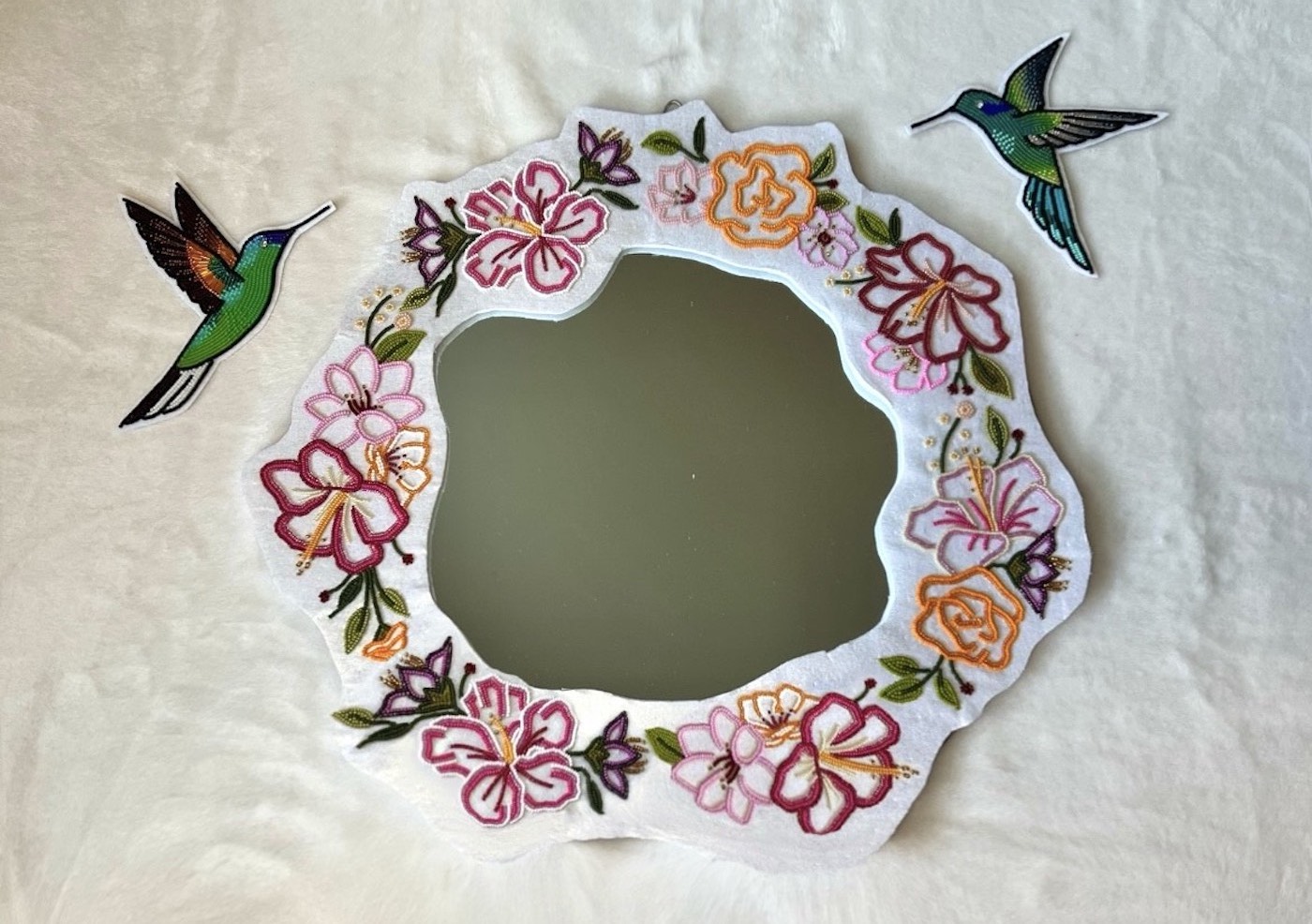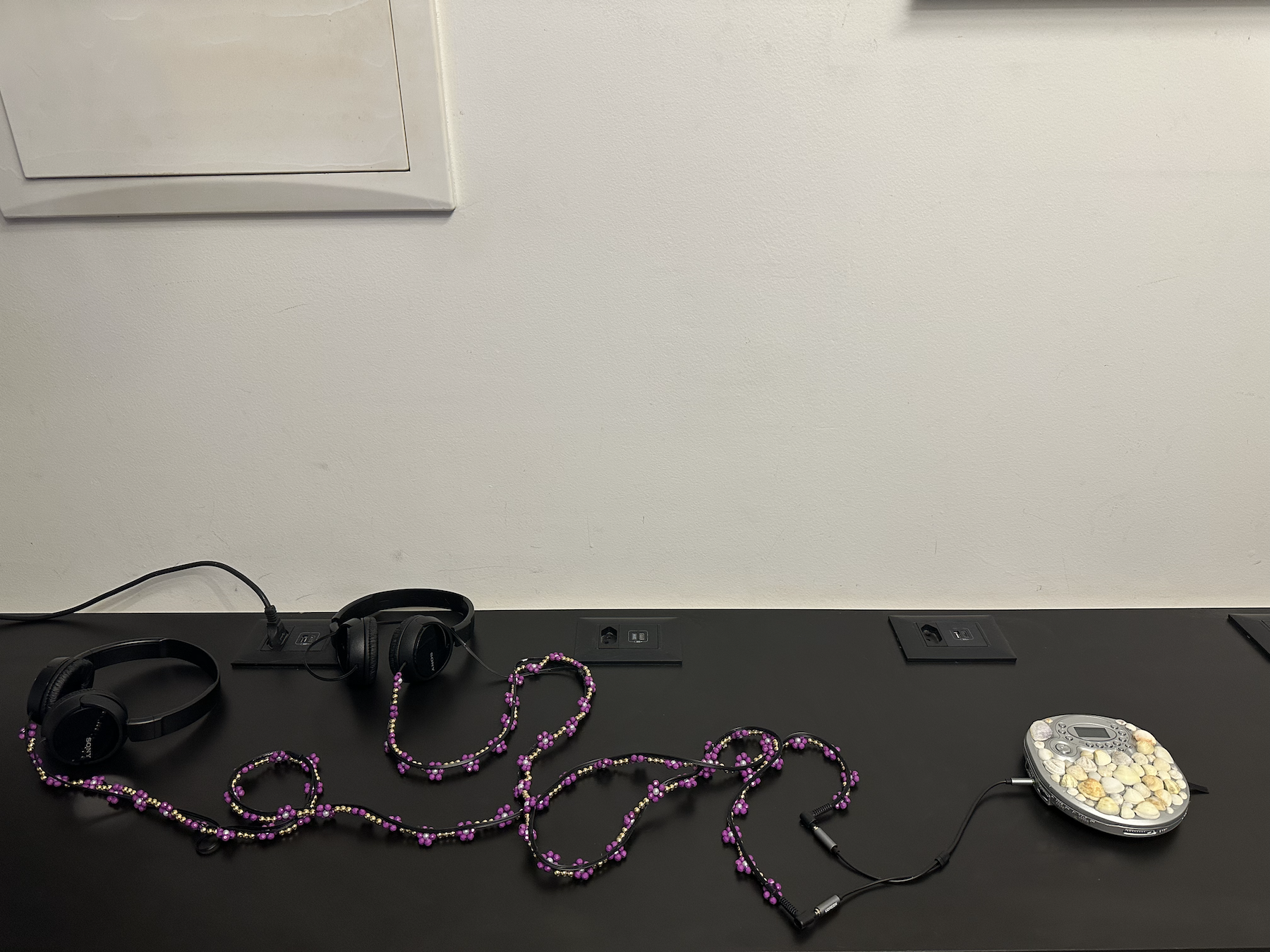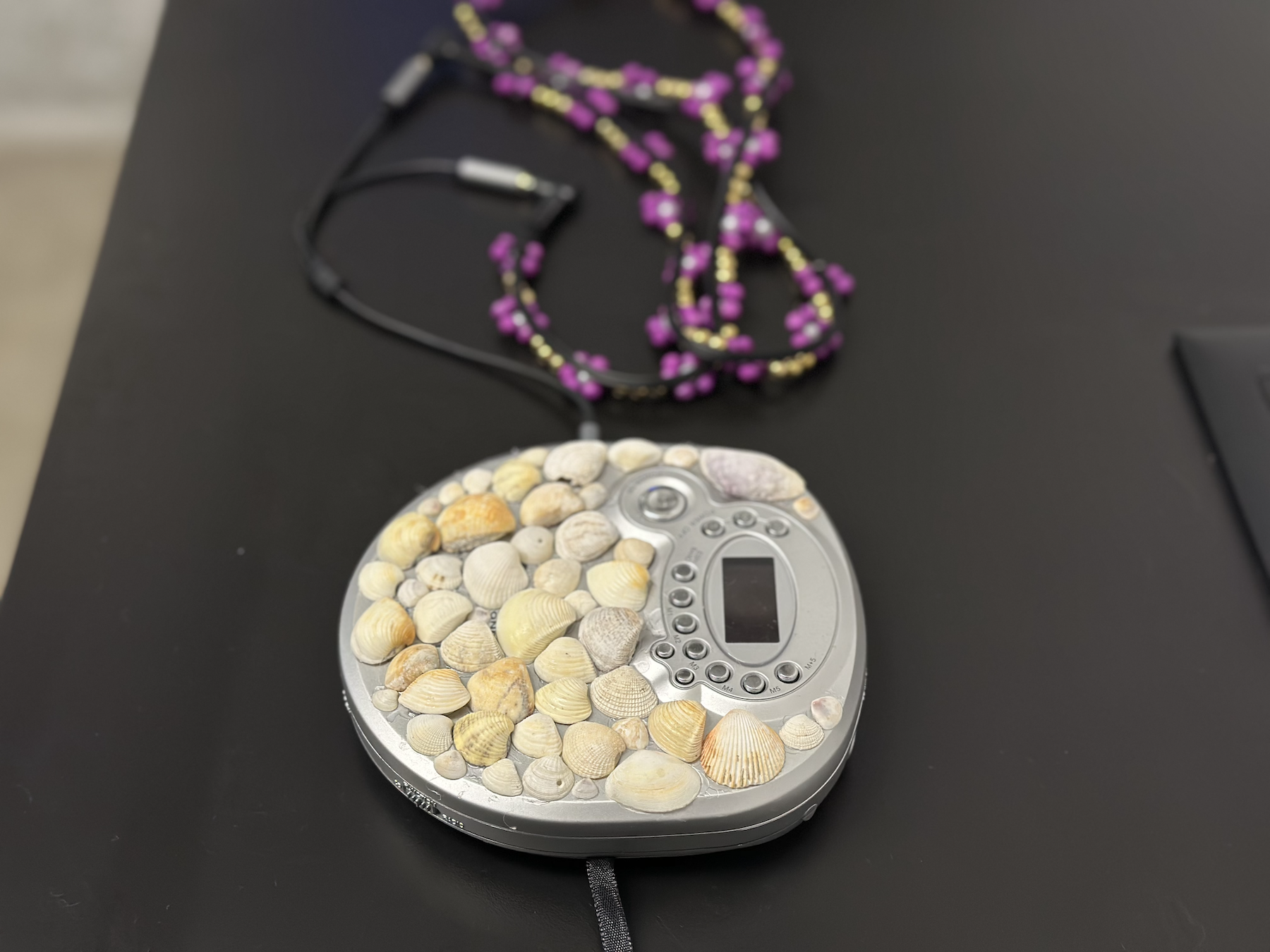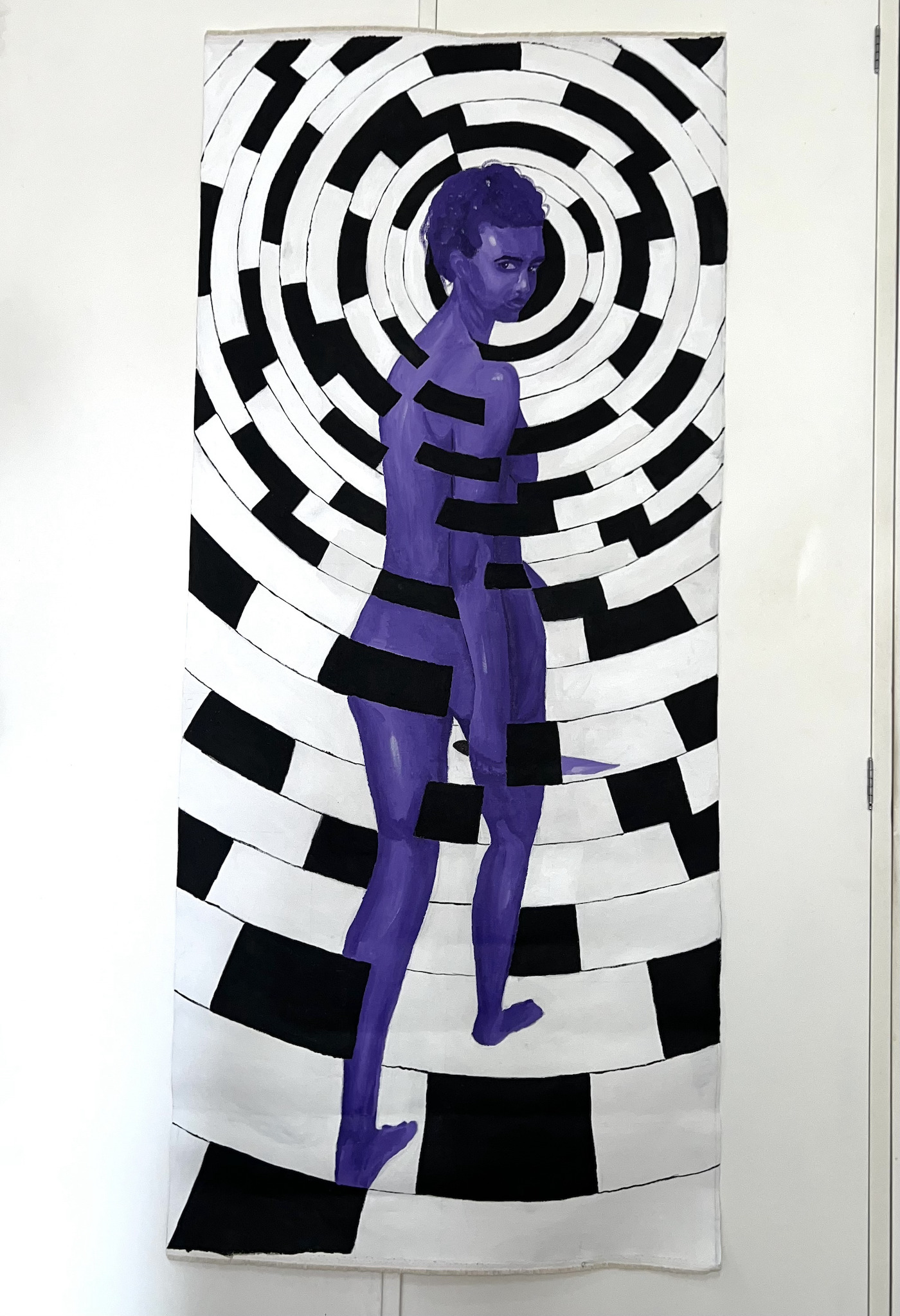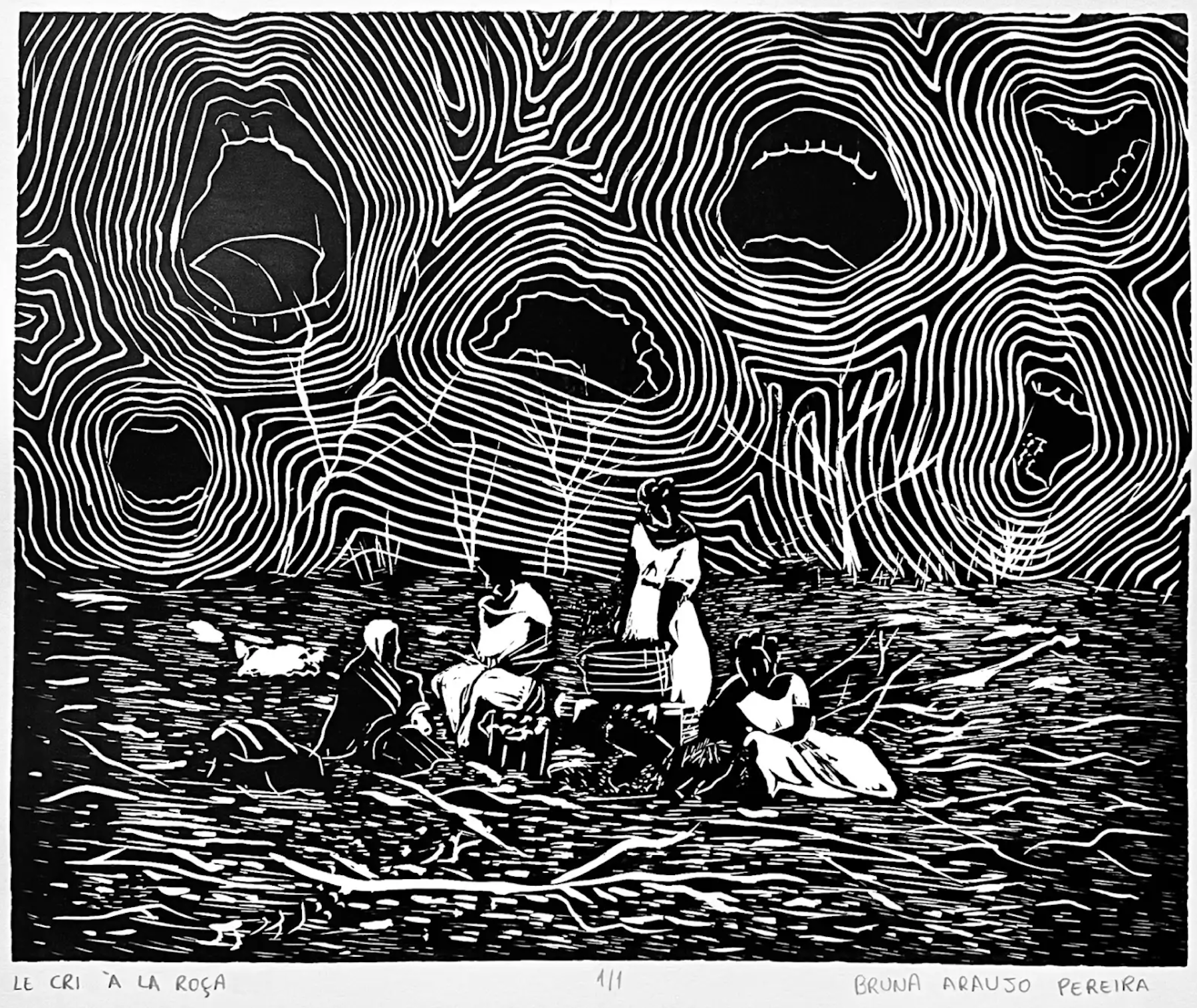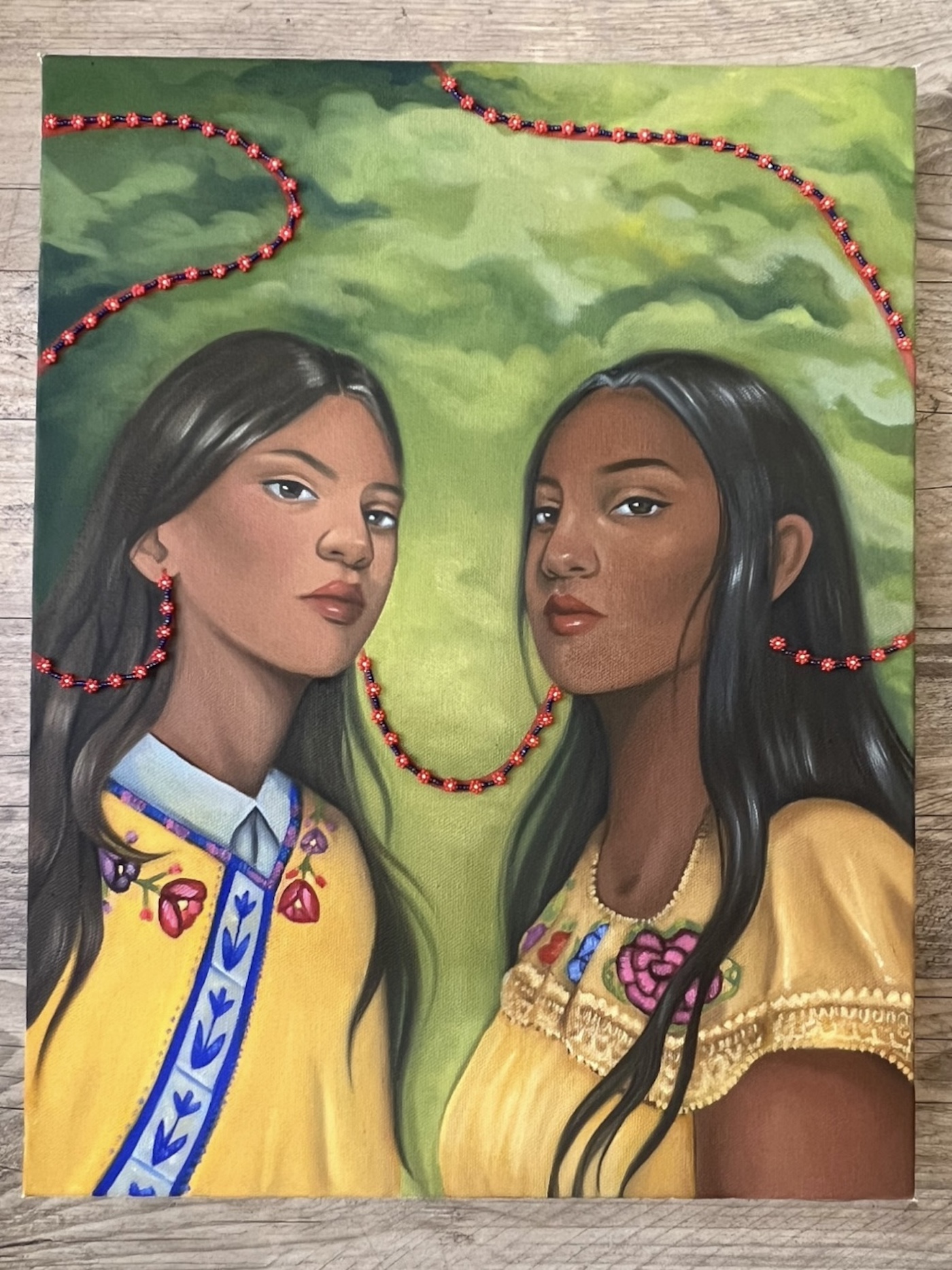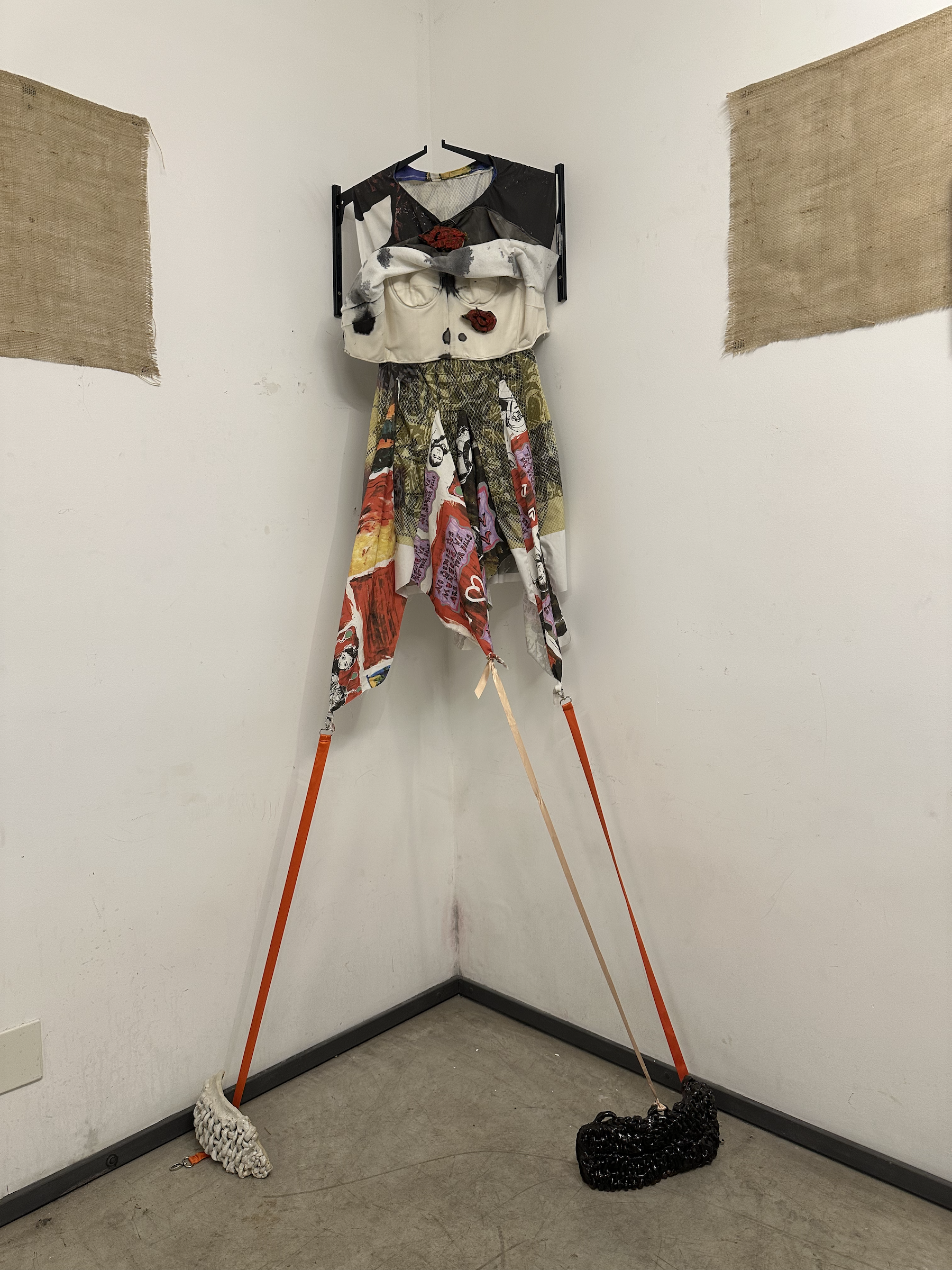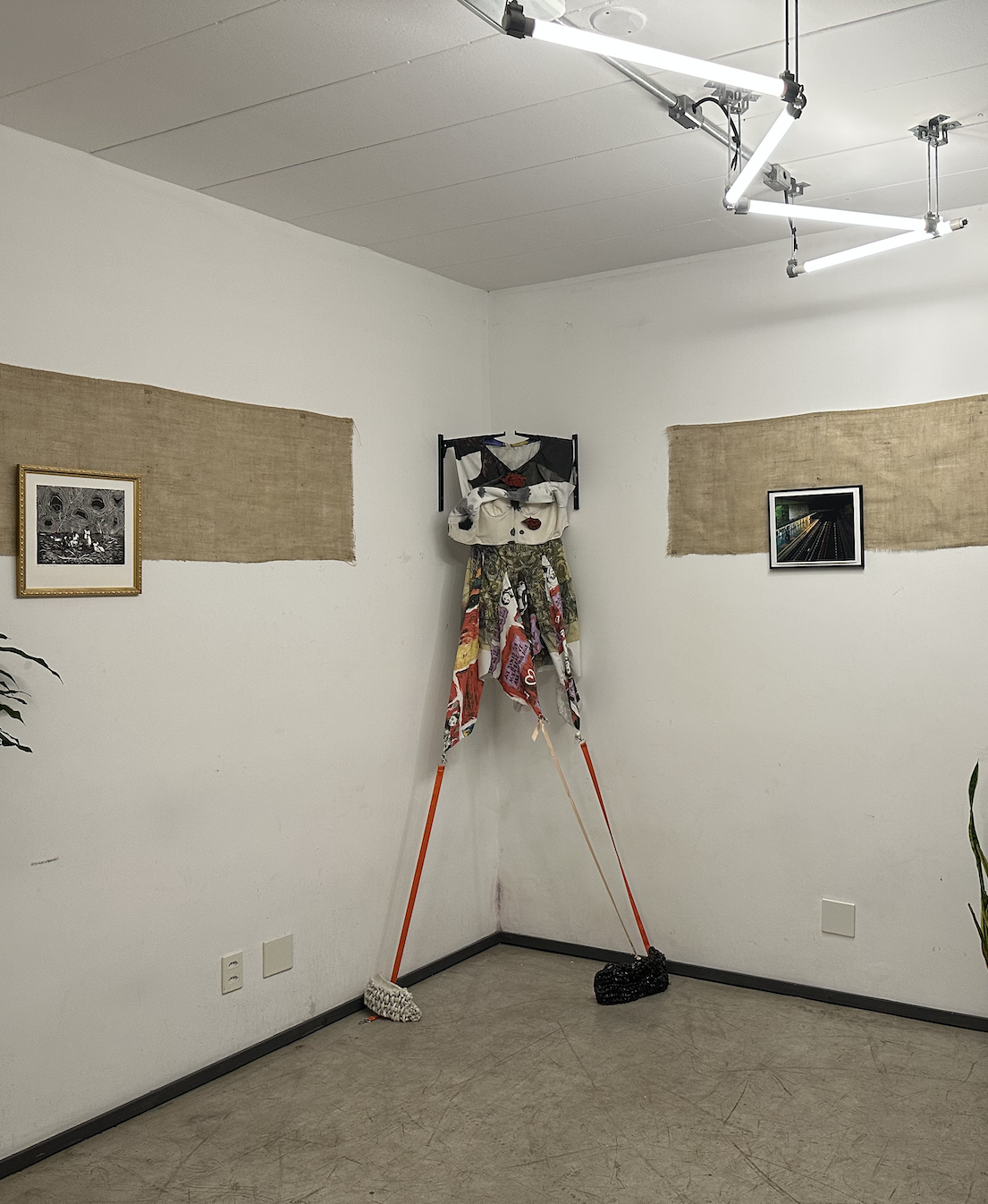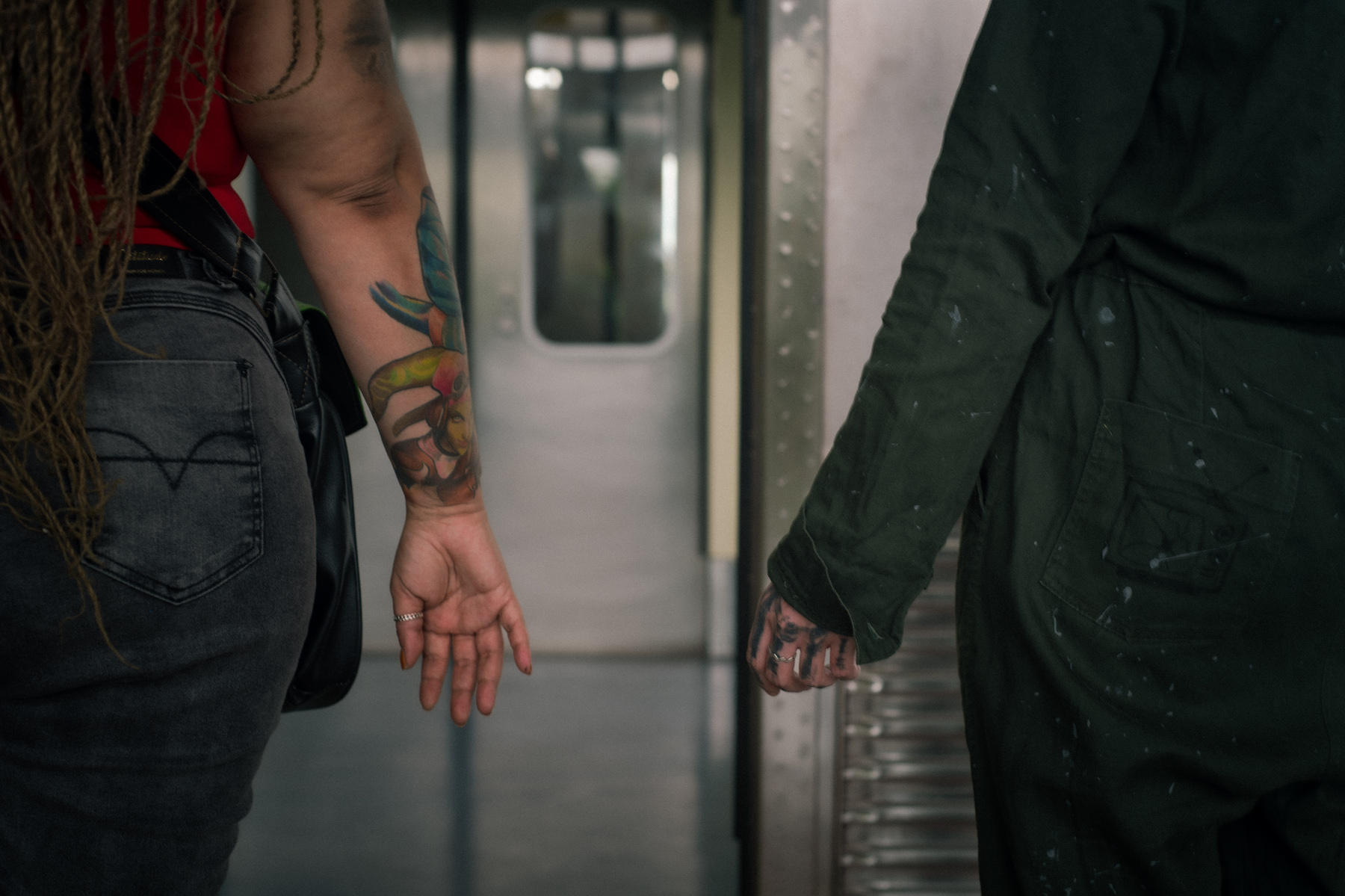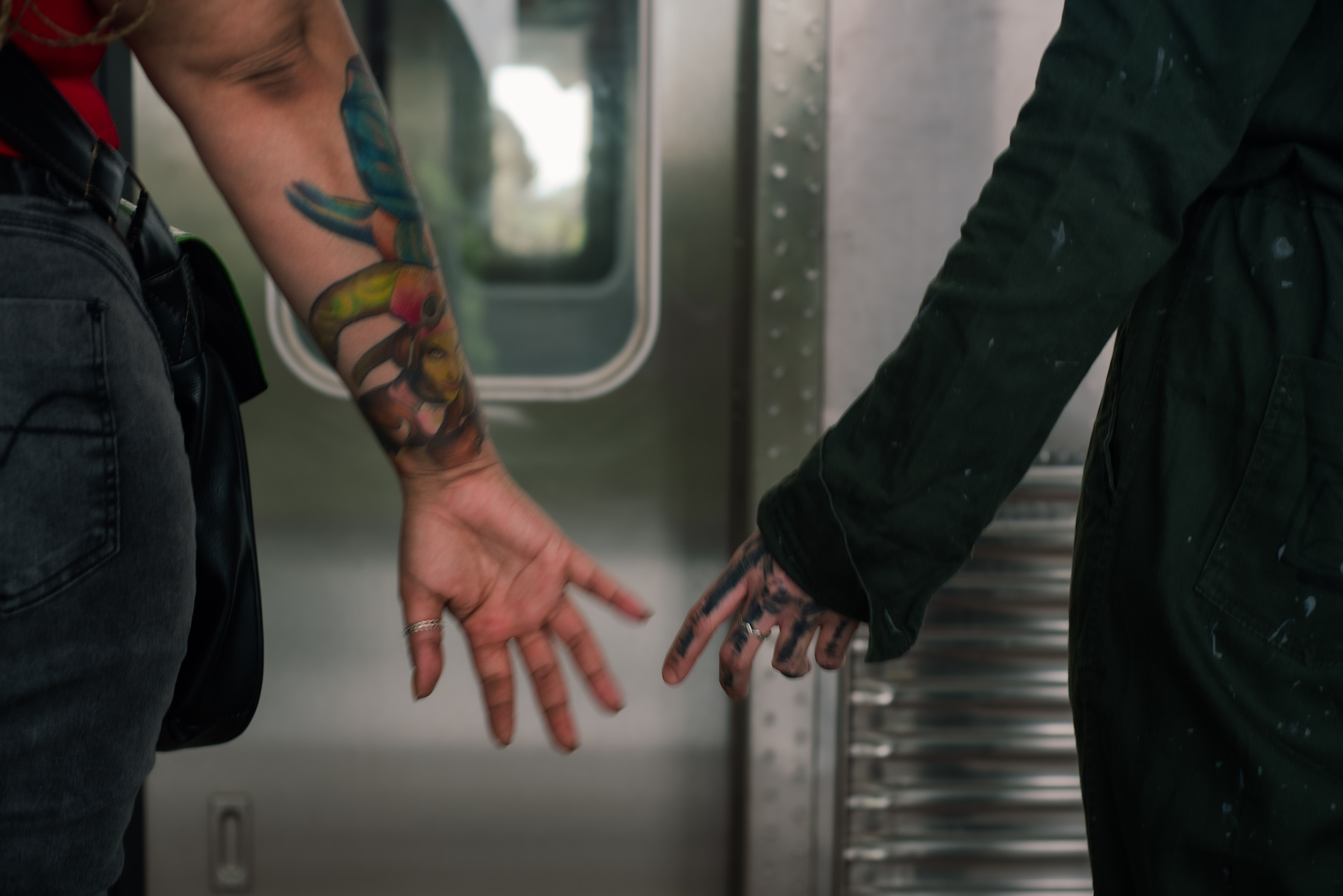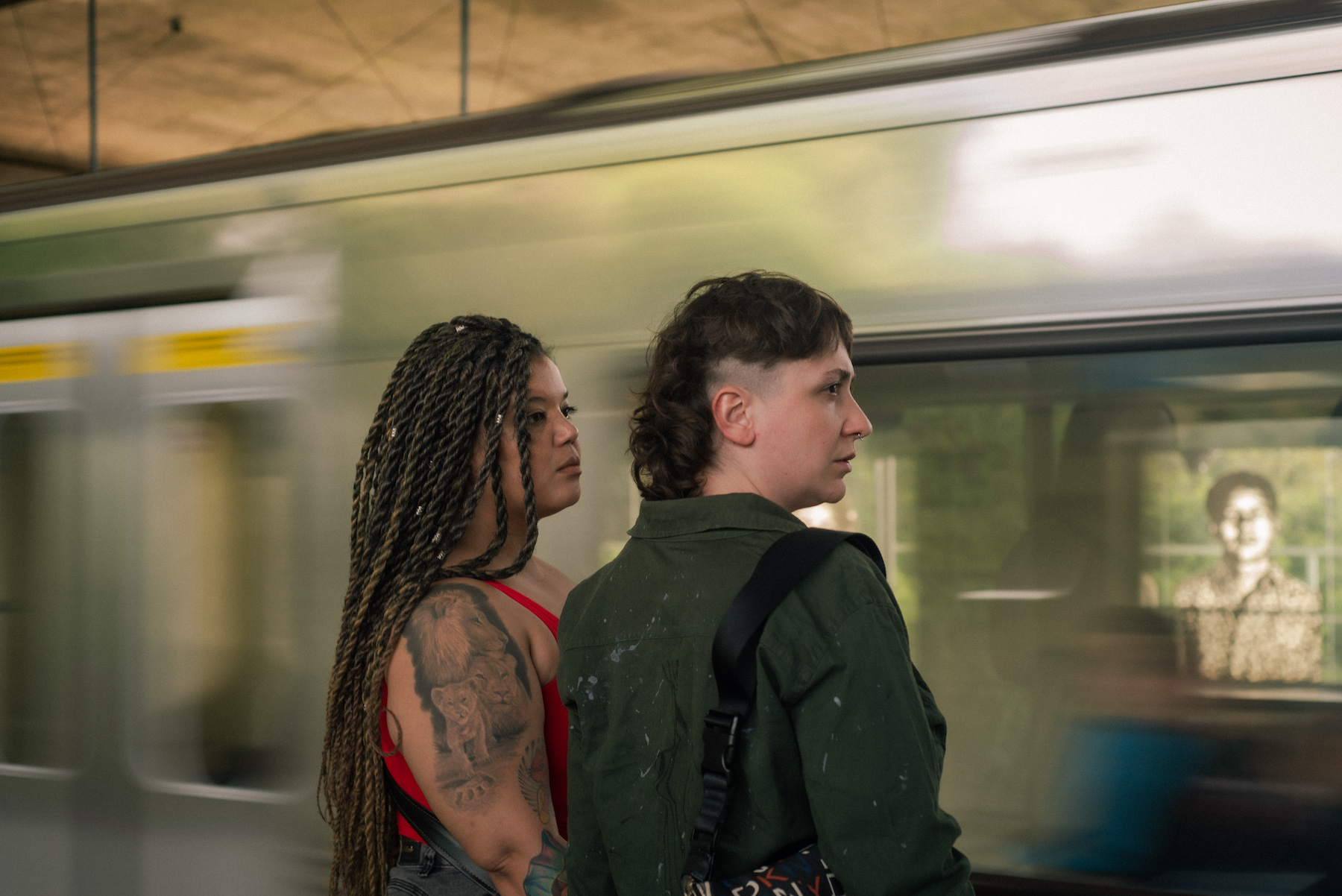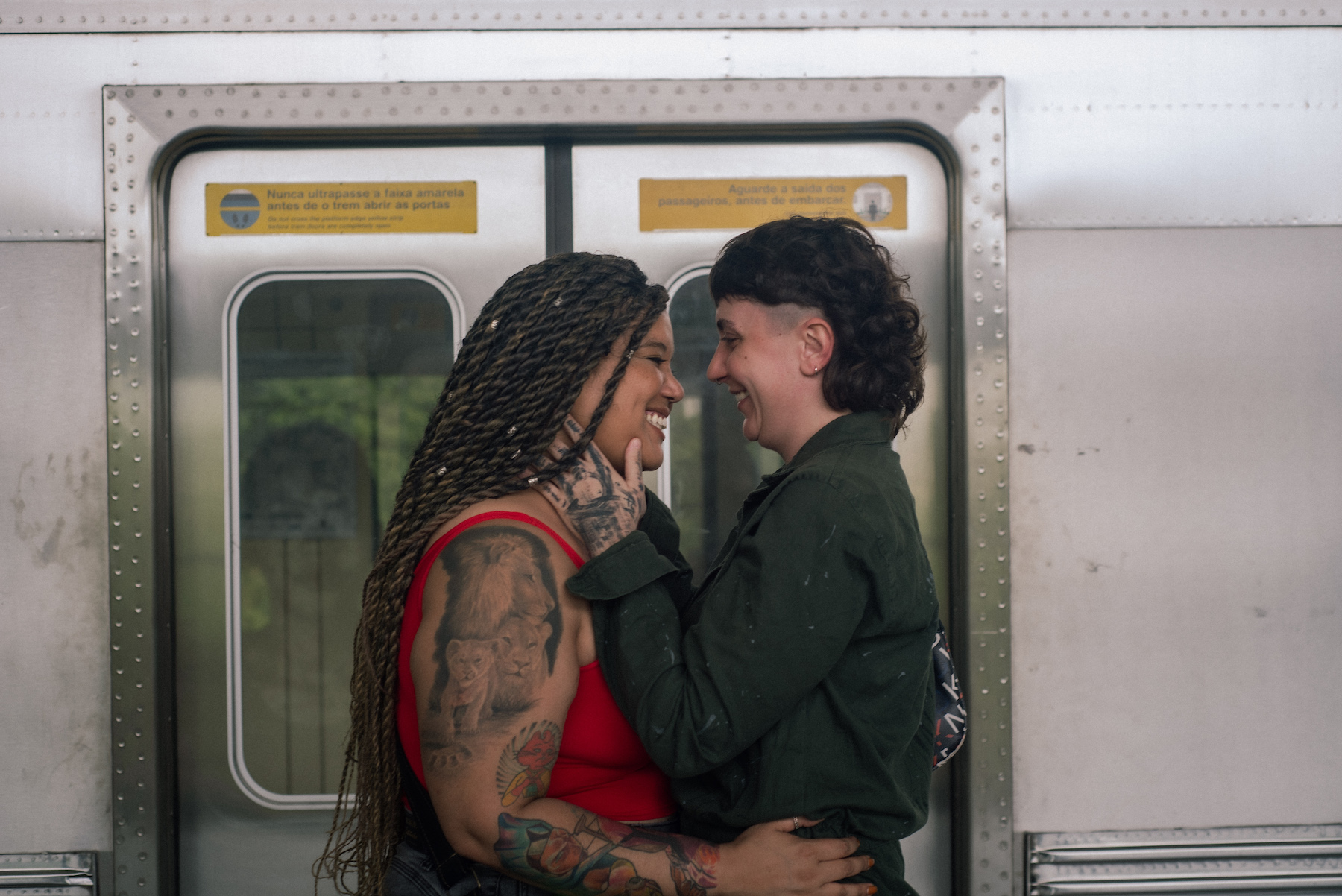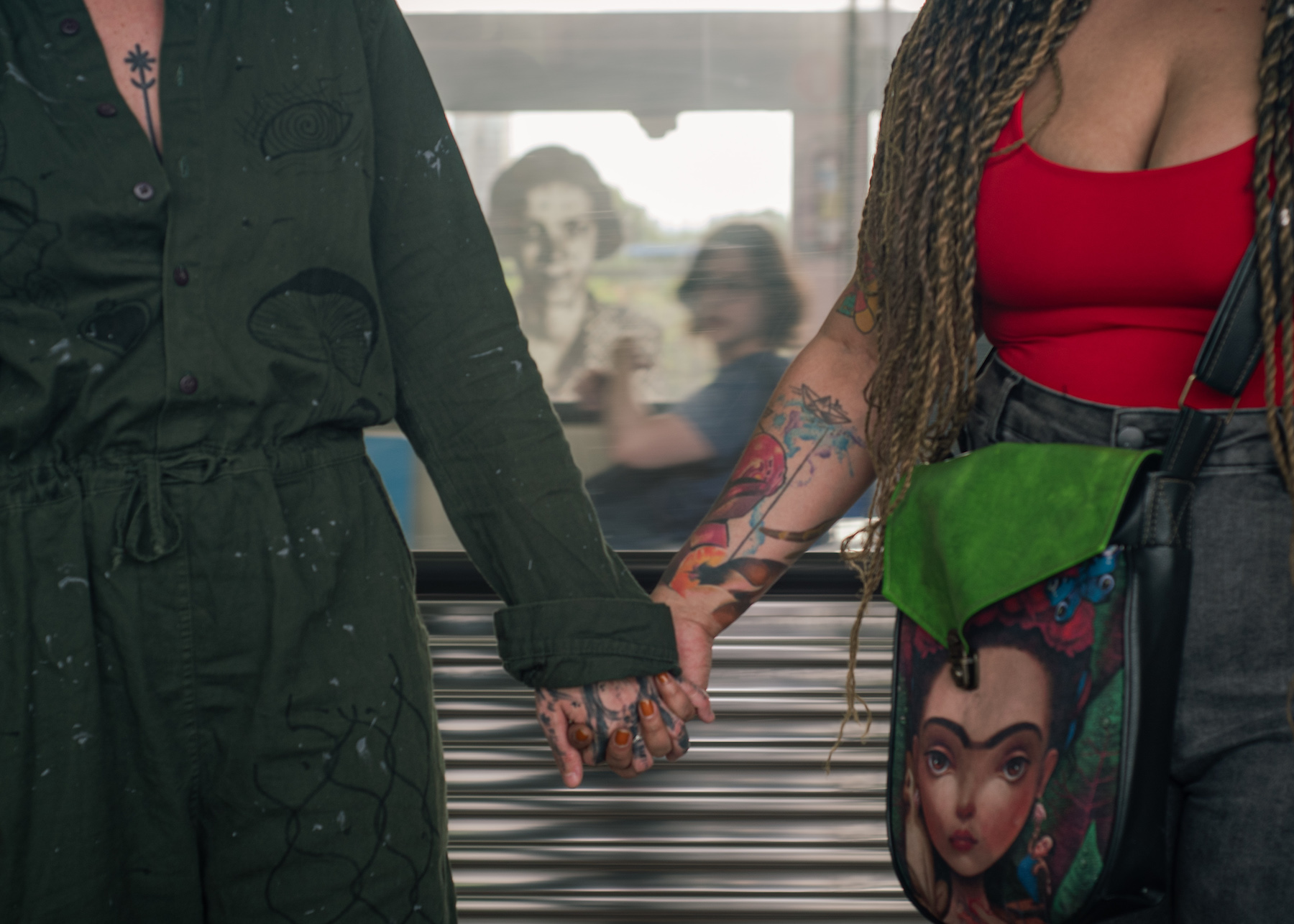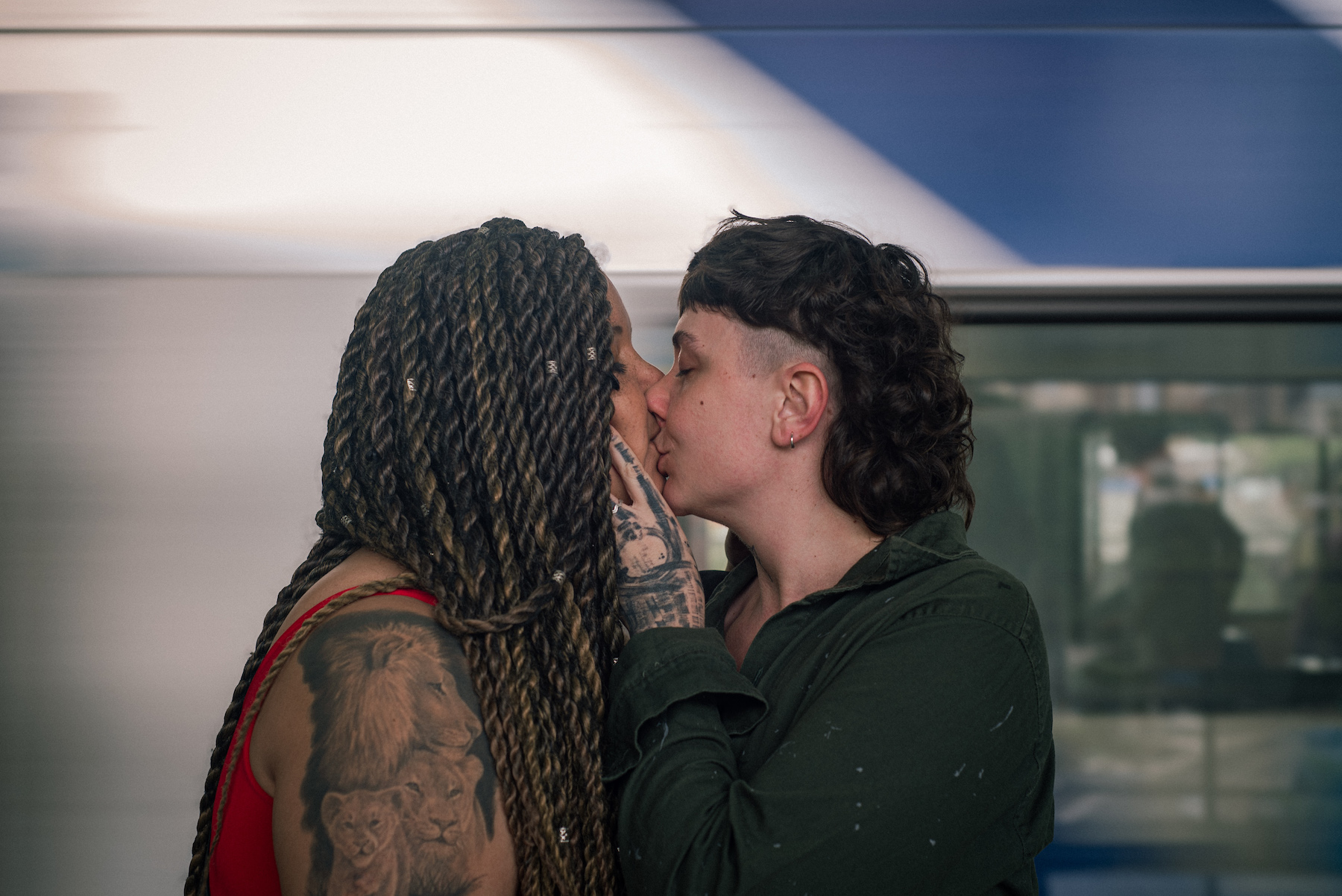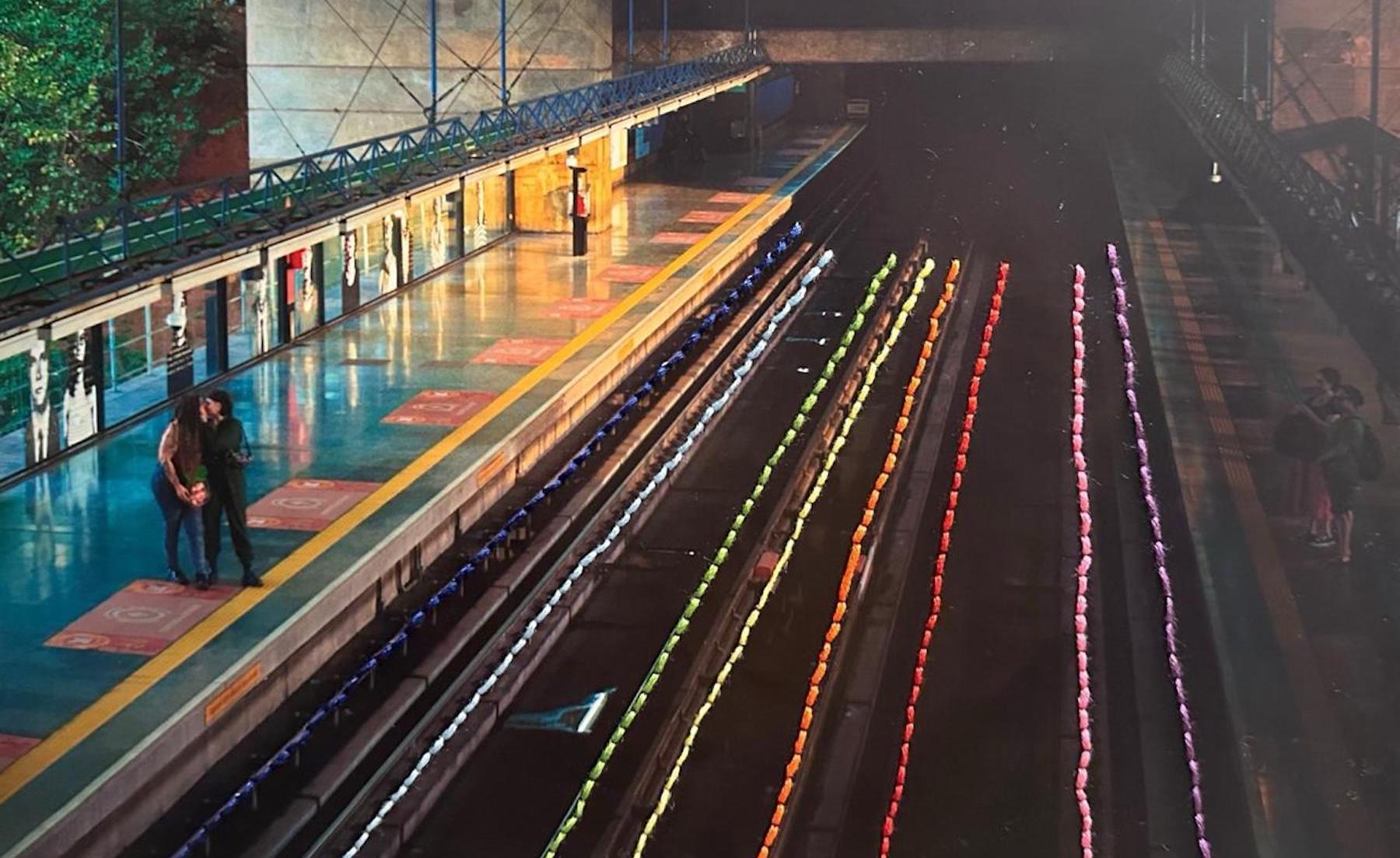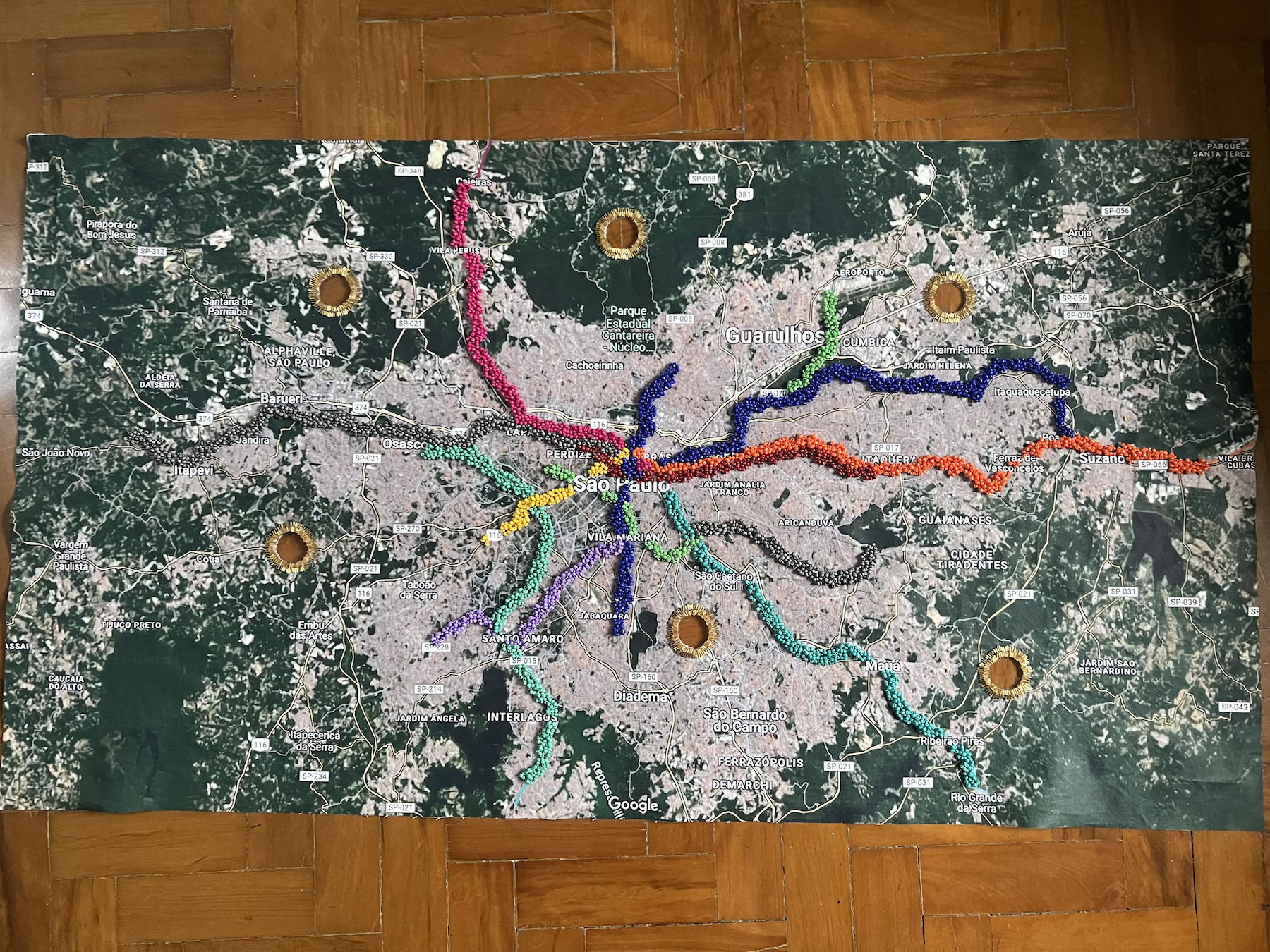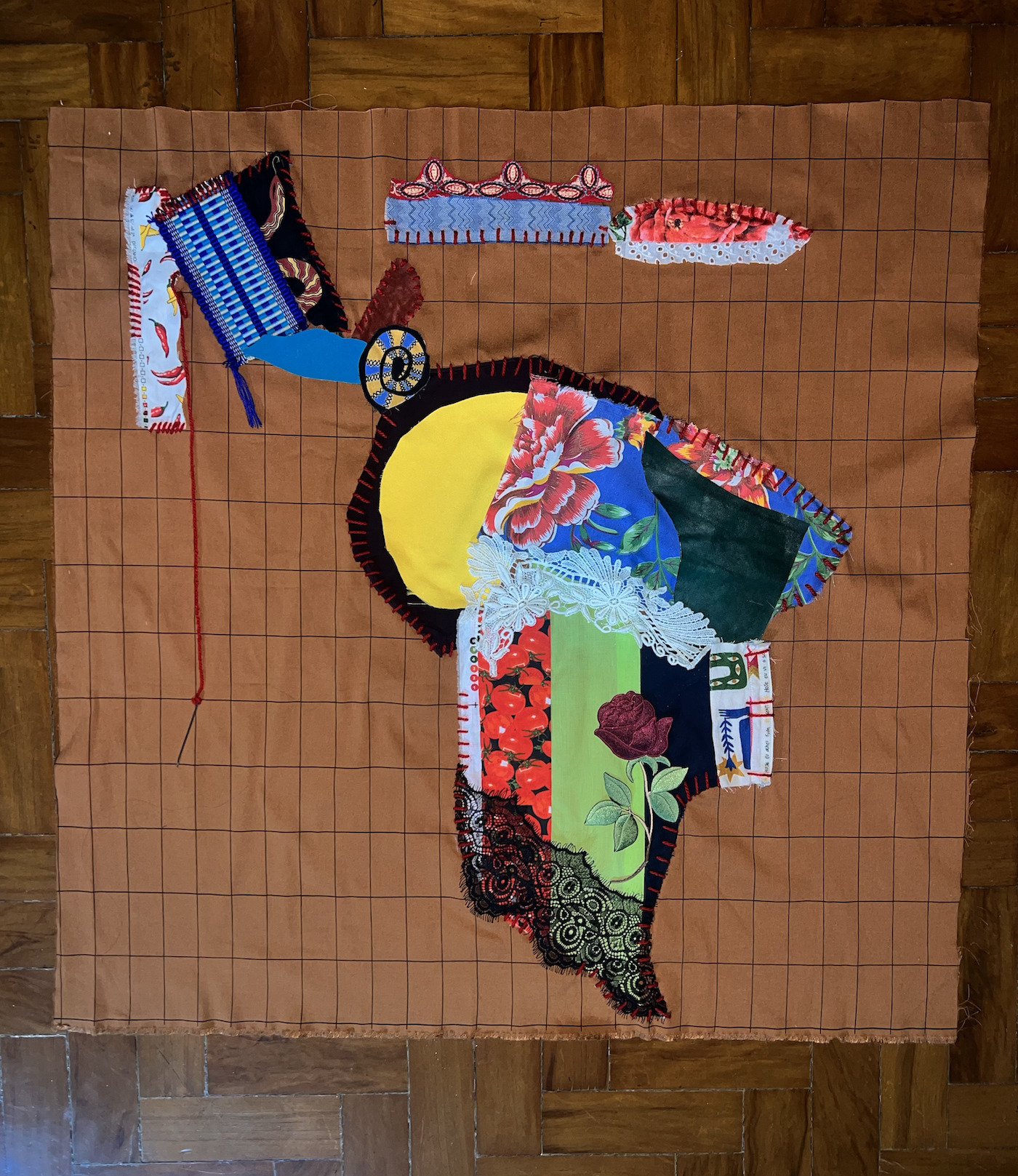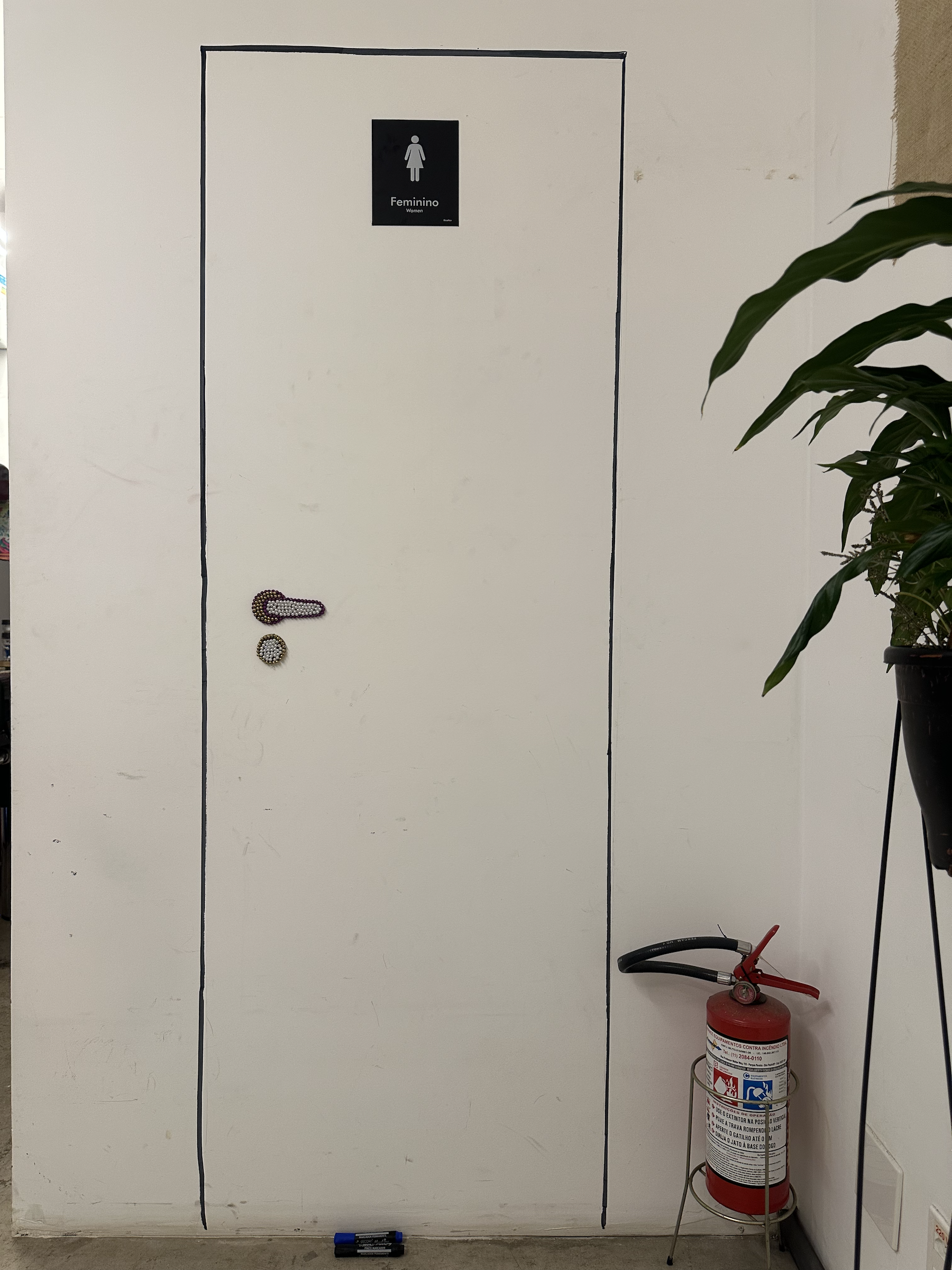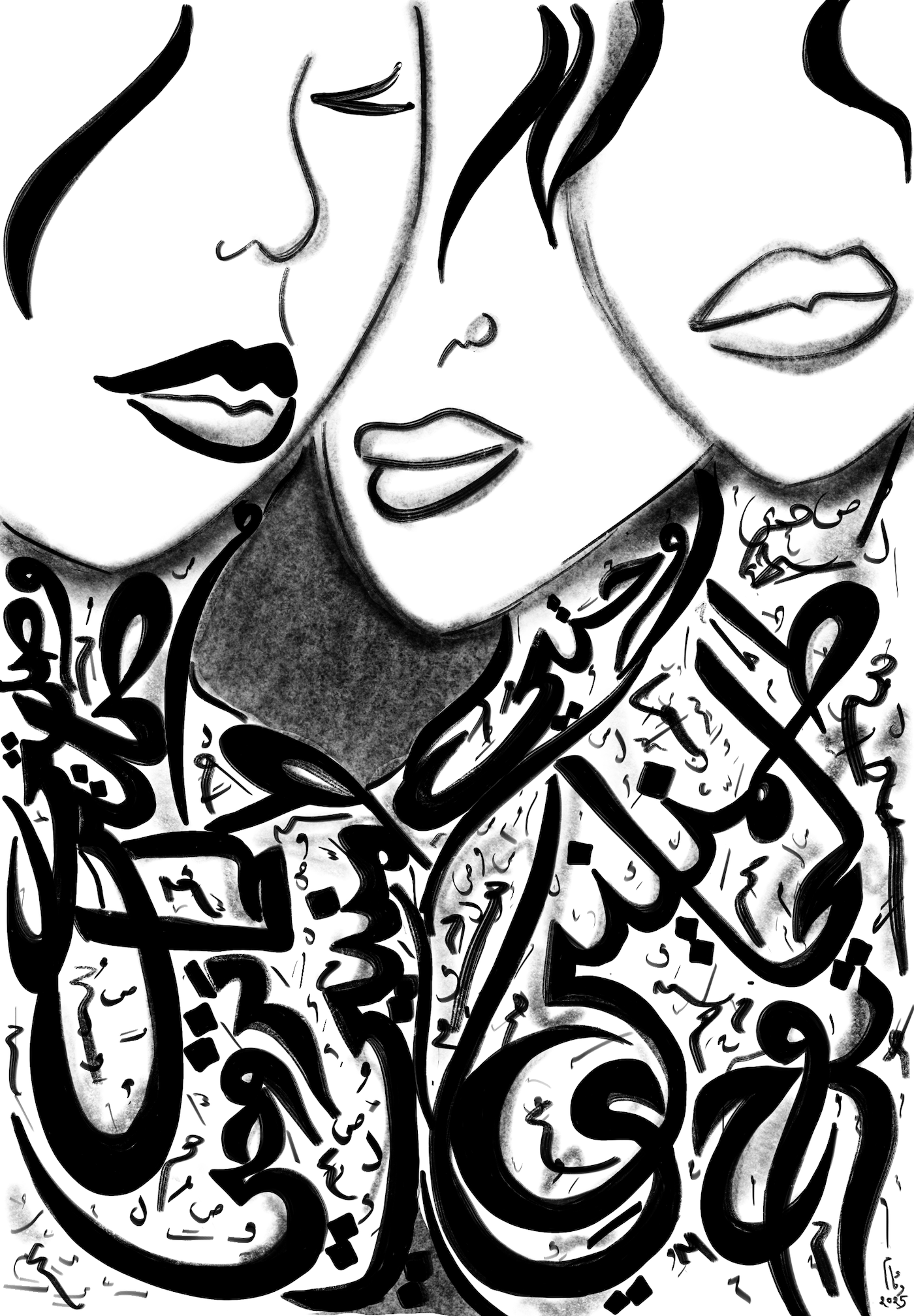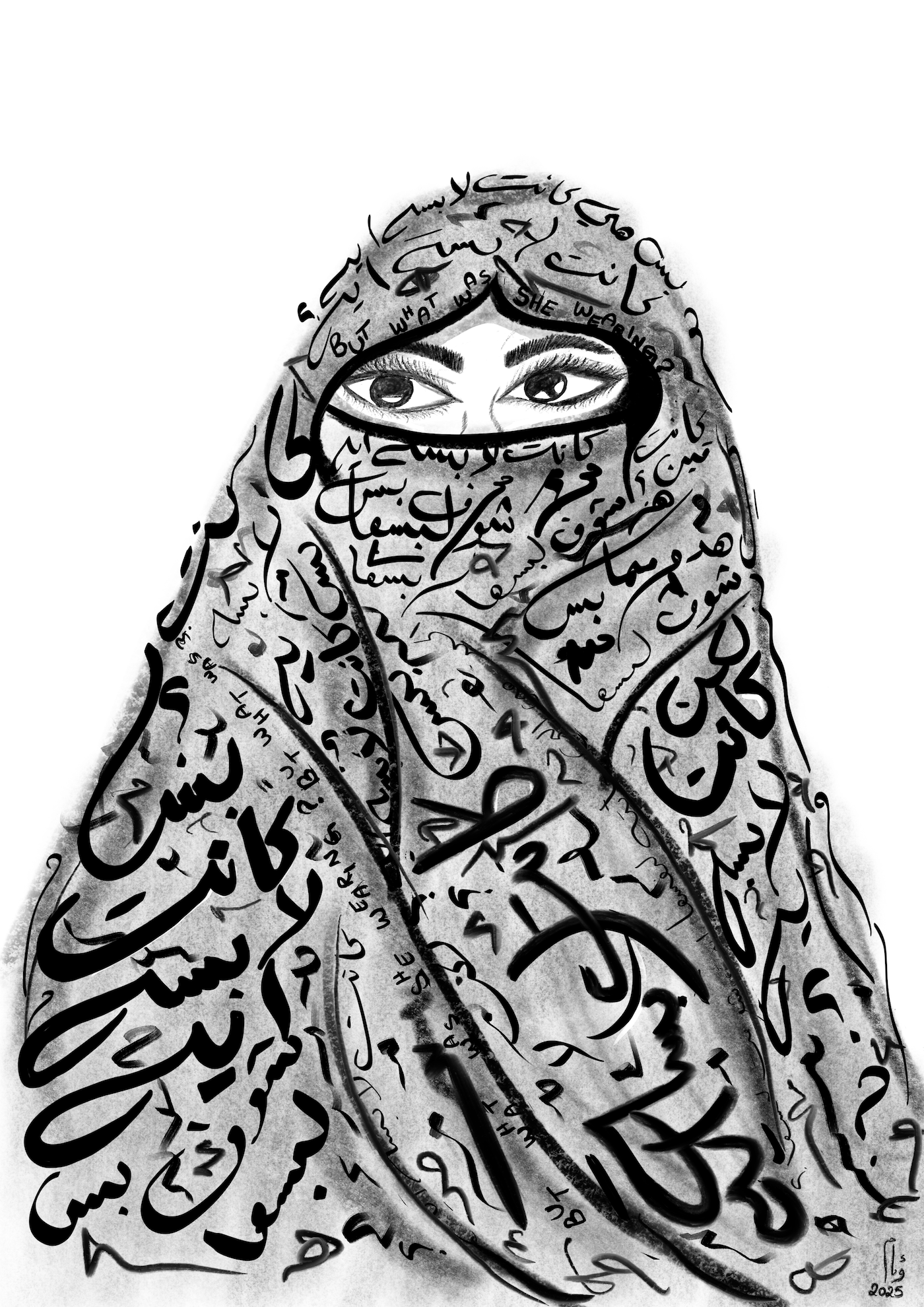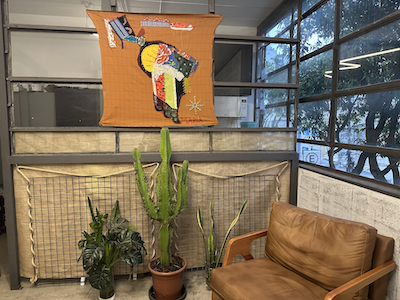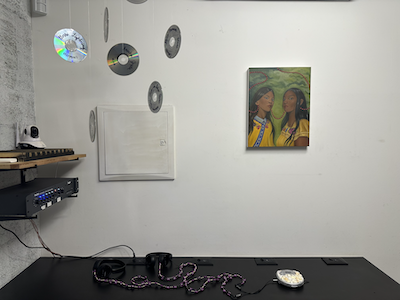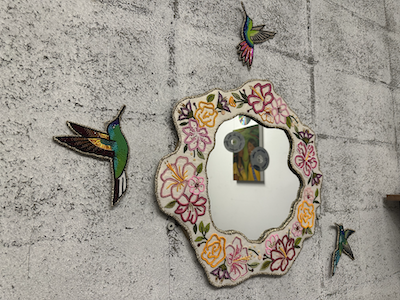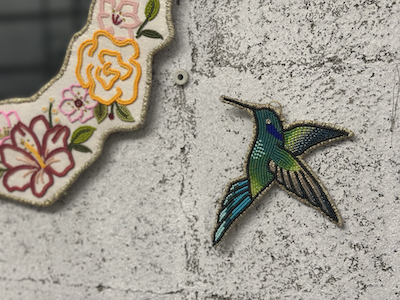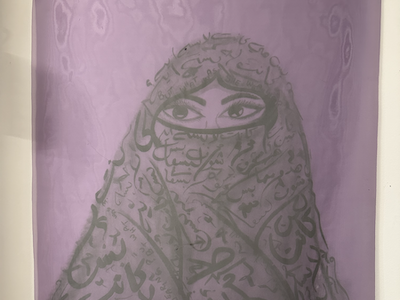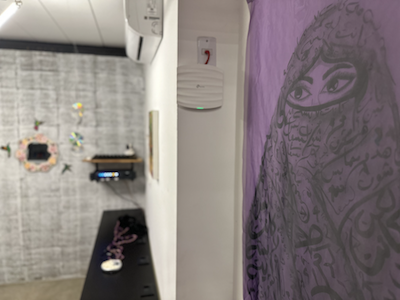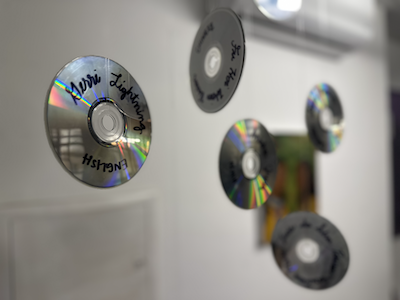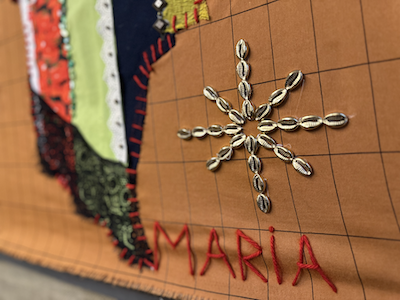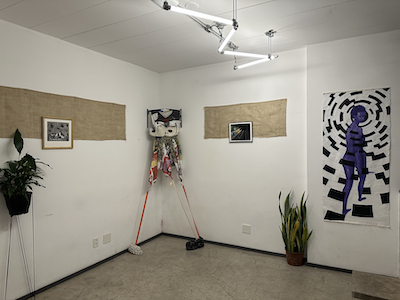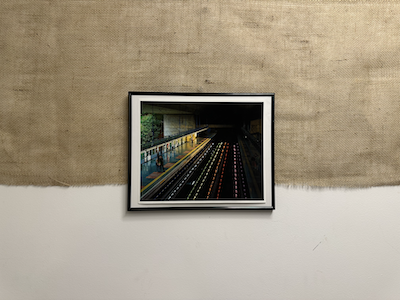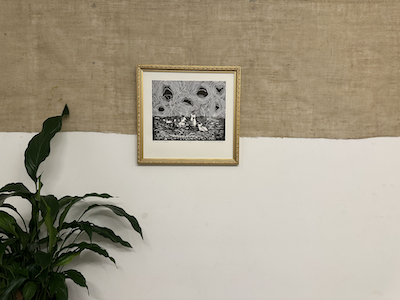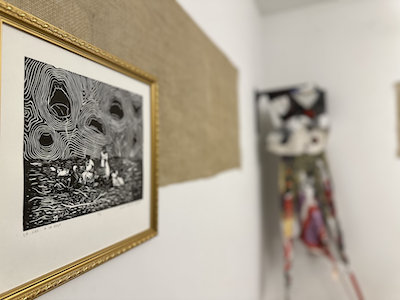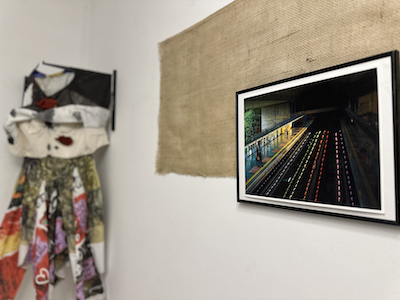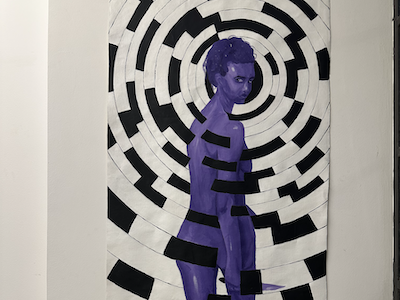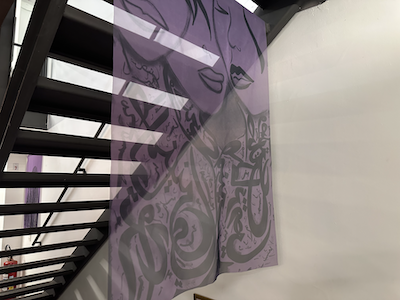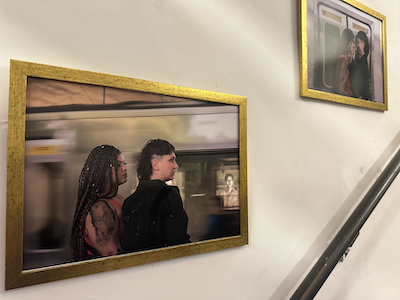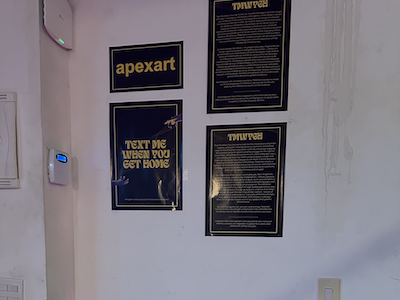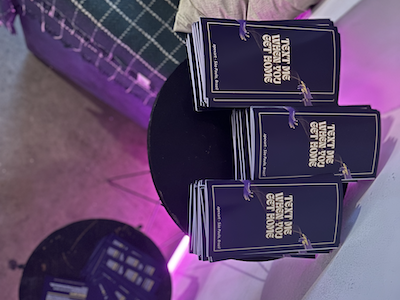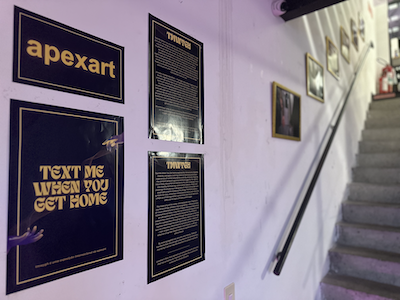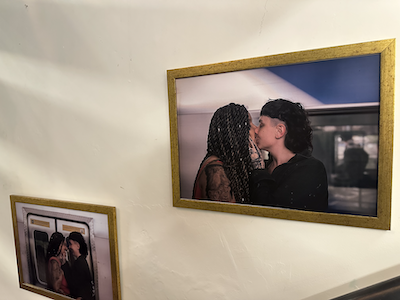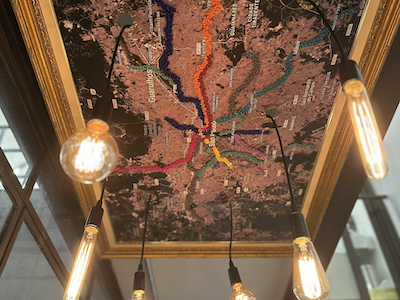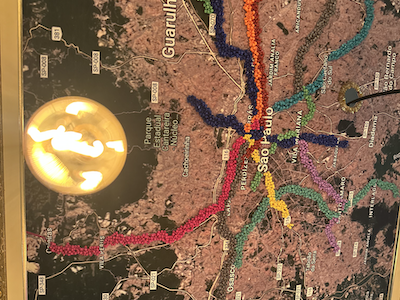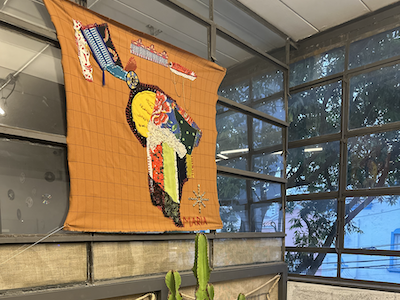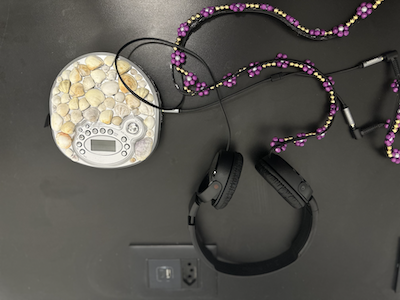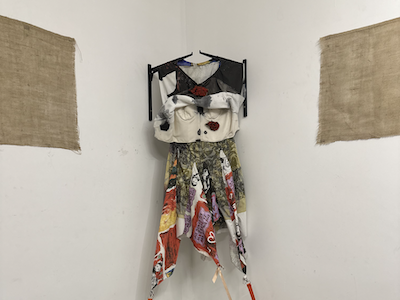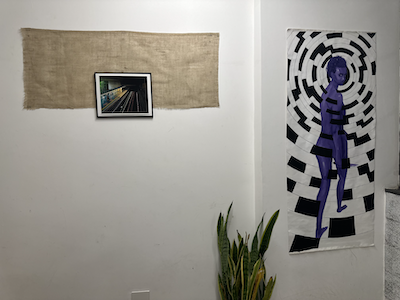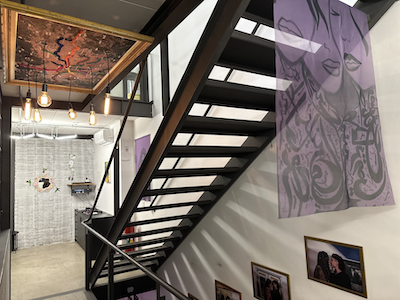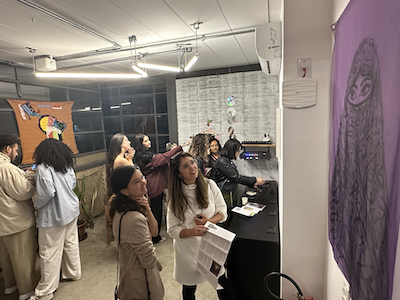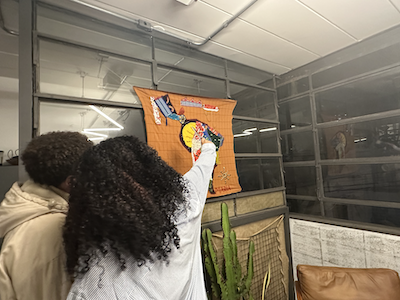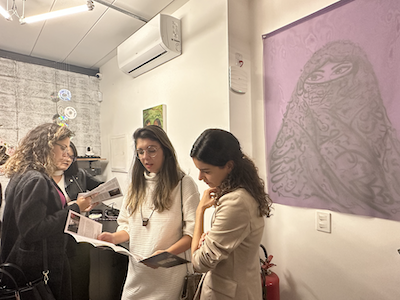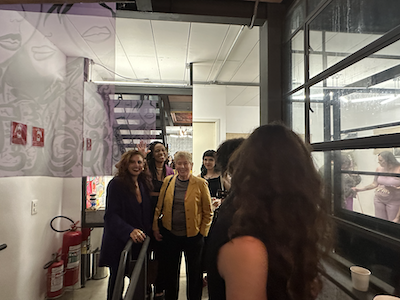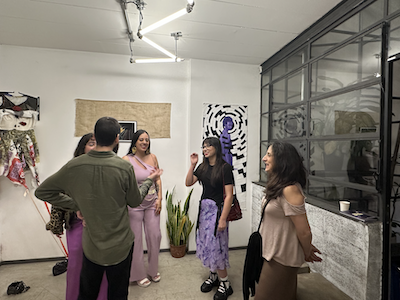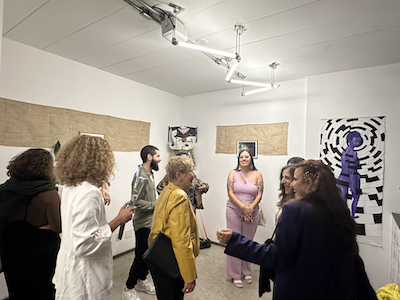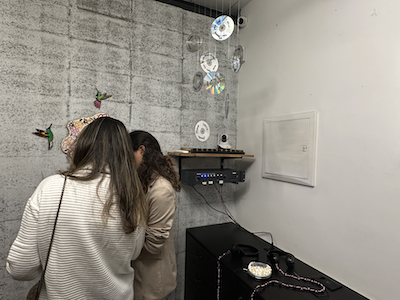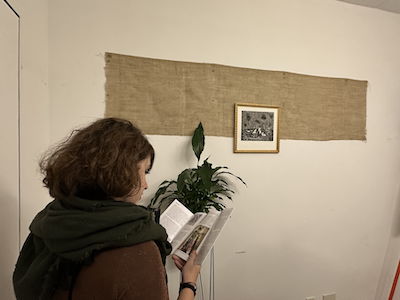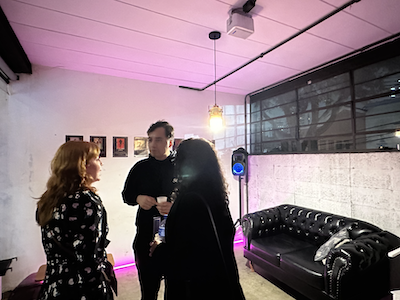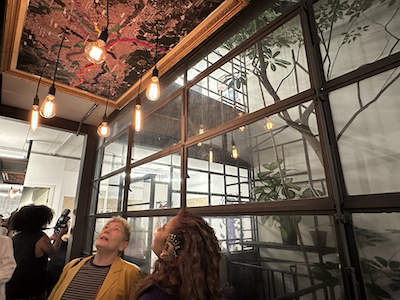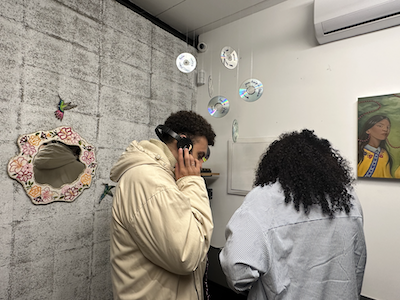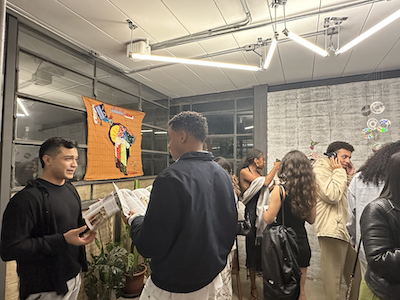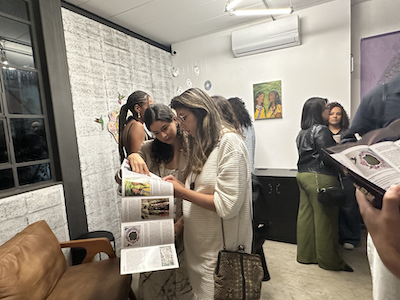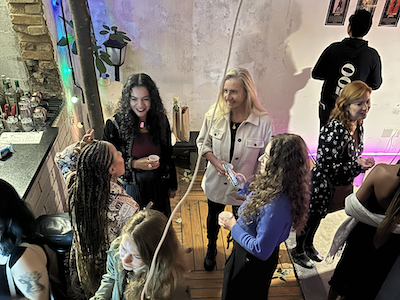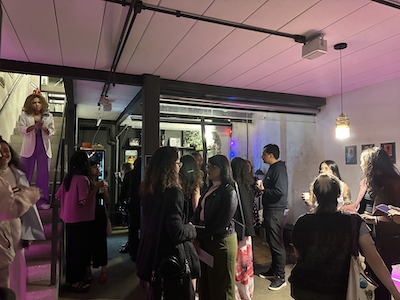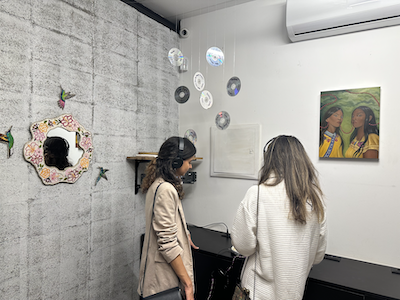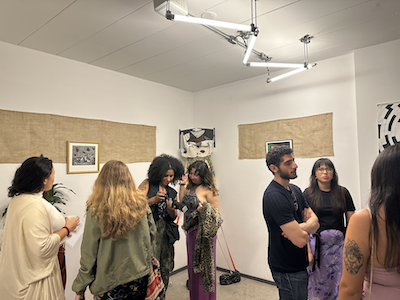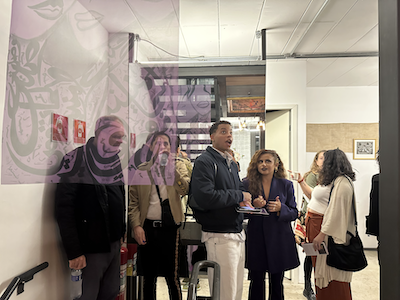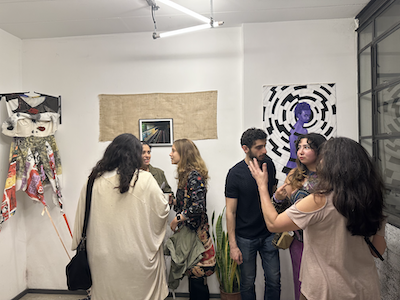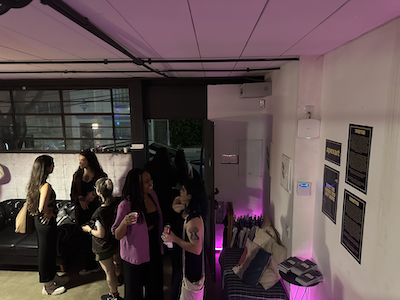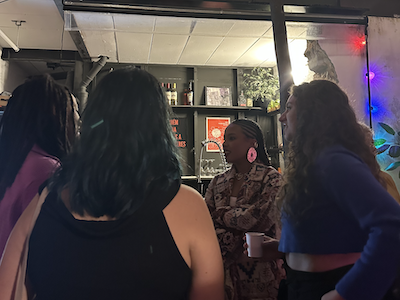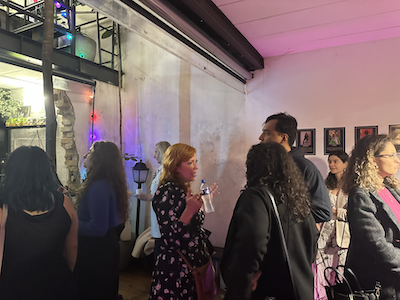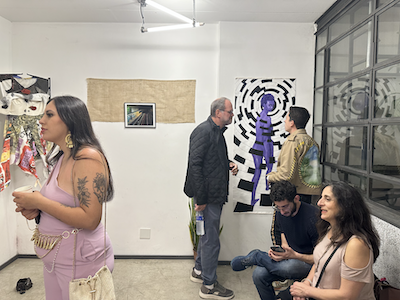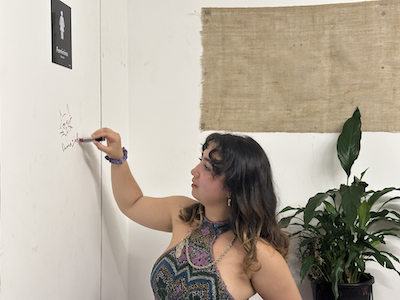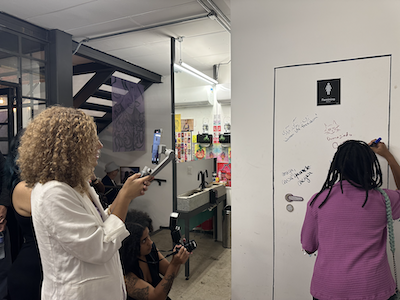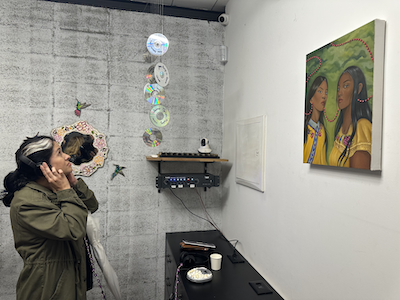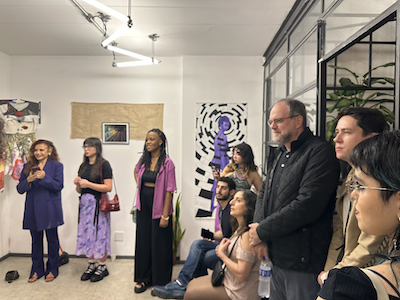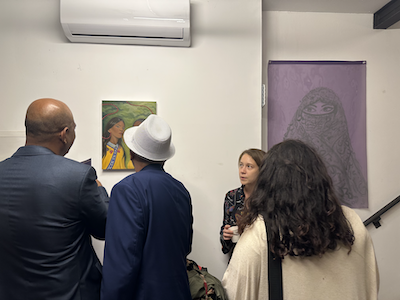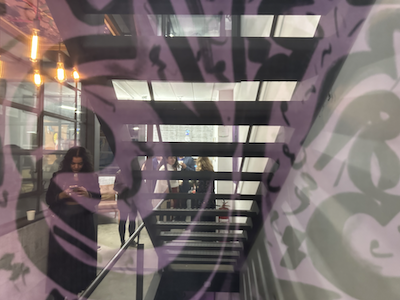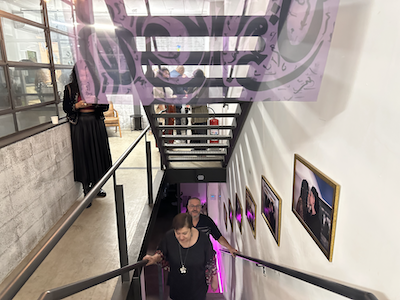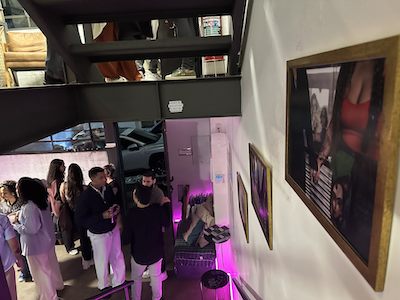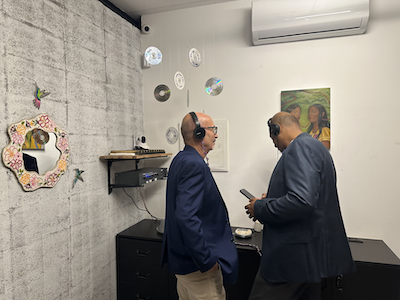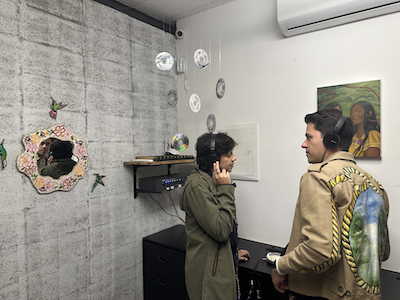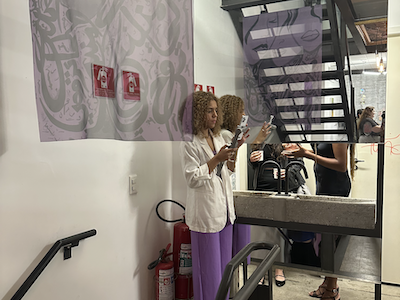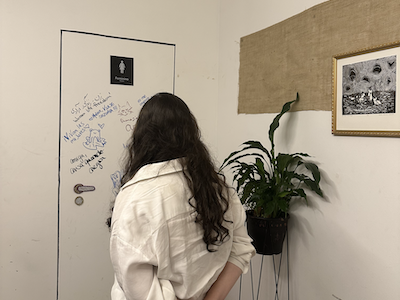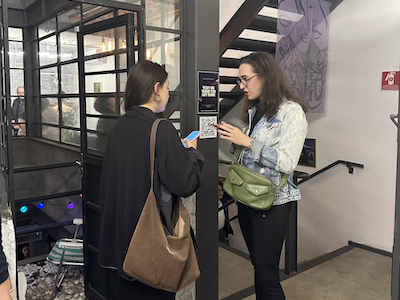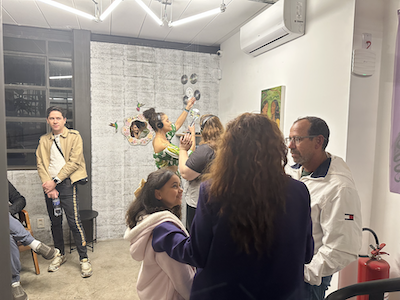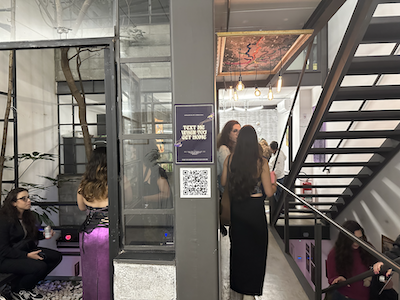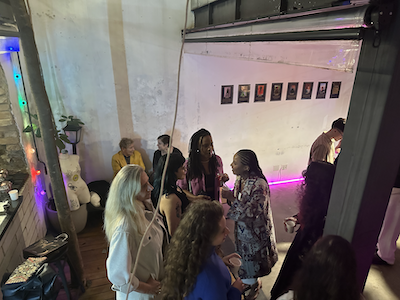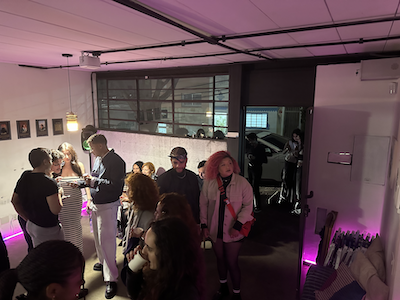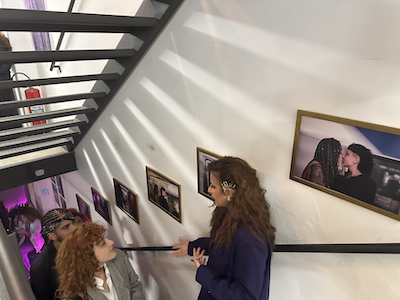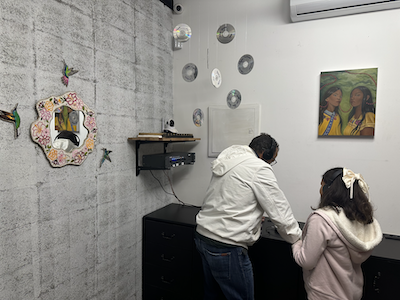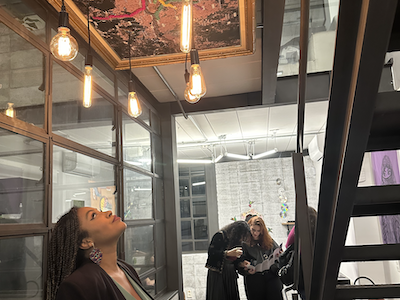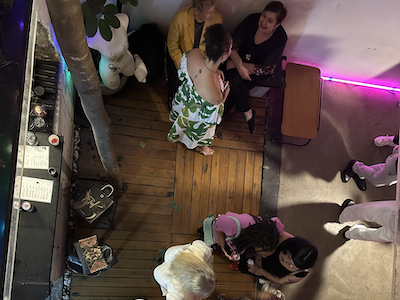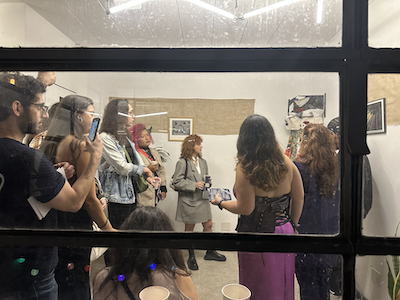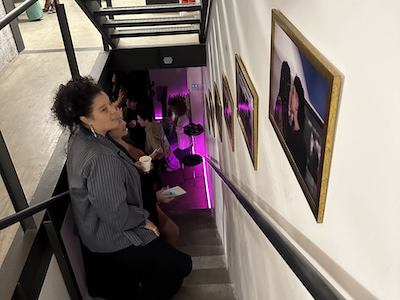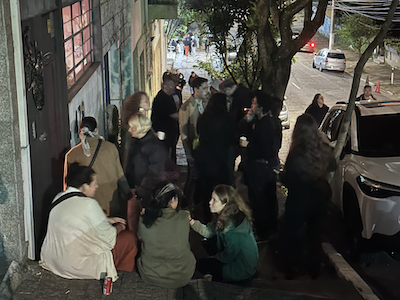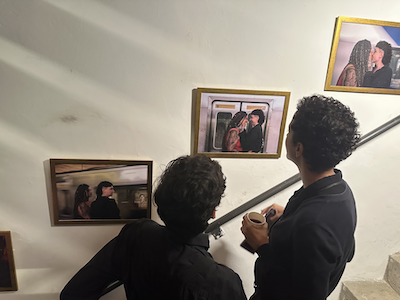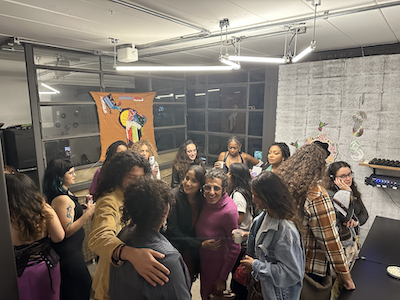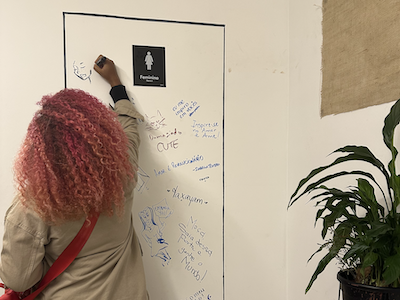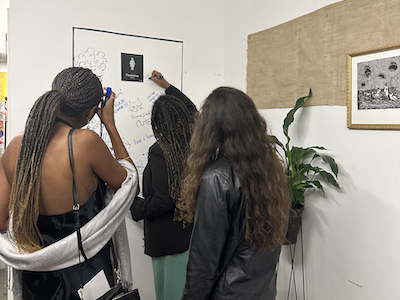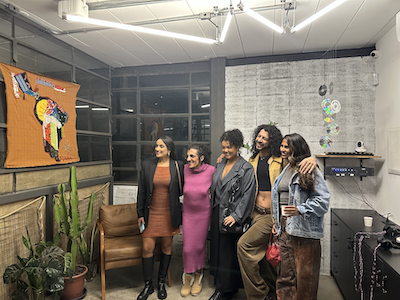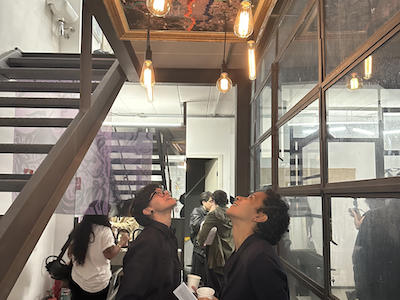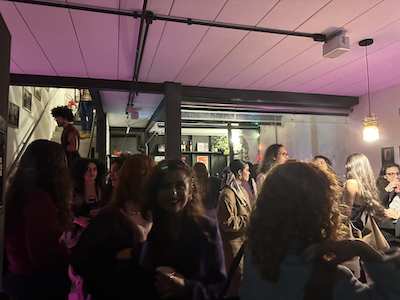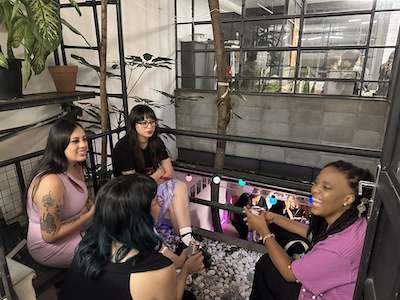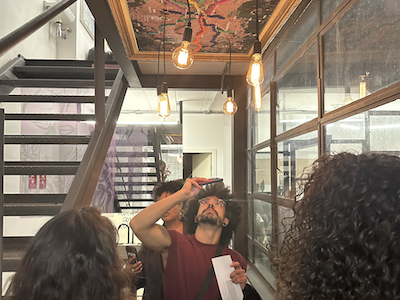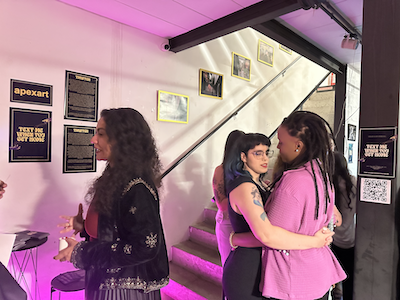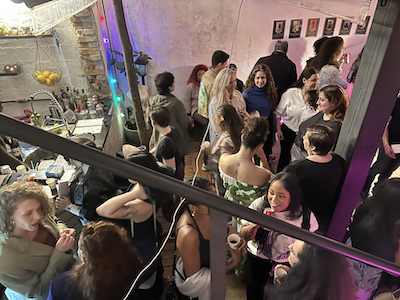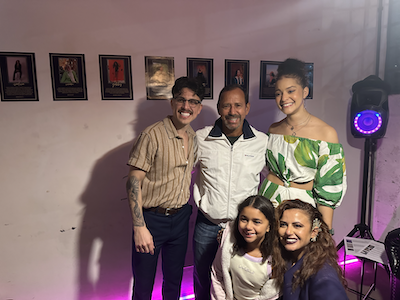Use your up, down, left, and right keys, or click within to navigate.
Ameyalli Mañon-Ferguson - Bruna Pereira - Chanti Mañon-Ferguson - Gabby Vazquez - Isabella de Souza Teixeira - Isadora Cardoso - Weam Elsheikh
"Text Me When You Get Home," a phrase translated to every language spoken by women, symbolizes a shared vigilance born of necessity. This exhibition, TMWYGH, weaves together the intricate layers of female identity, resilience, and the inherent solidarity forged from collective survival and the pursuit of safety in community. It aims to highlight the invisible threads that bind women across cultures, elevating a universal sisterhood crafted for survival.
TMWYGH delves deep into the essence of womanhood, showcasing artworks that reflect the complex interplay between strength and vulnerability, presence and erasure, autonomy and fear. This global project brings forth a narrative that spans continents, featuring contributions from artists and movements from around the world, such as Missing and Murdered Indigenous Women (MMIW) and feminist movements from Latin America and the Global South. Incorporating the stories of LGBTQ+ women and women of color, TMWYGH broadens its narrative, acknowledging the additional challenges faced by the layers of identities. This amalgamation of influences underscores the exhibition's dedication to exploring the diverse and interconnected struggles of women, emphasizing a collective fight for justice and recognition.
Central to the exhibition is a storytelling approach depicting safety as an elusive and, often unattainable, luxury. TMWYGH employs visual art, digital tools, data visualization, and interactive elements to confront the economic, emotional, and physical tolls of this relentless pursuit to get home safely. An immersive installation, a recreated women's restroom, symbolizes the unspoken sanctuaries of support among women. Within this space, a hidden message reflects the strategies embedded in women's daily lives for protection and solidarity. Recorded audio messages, missed video chats, and shared location apps are also some of the elements brought to the immersive exhibit to make the experience relatable to the ones present.
TMWYGH is not just an exhibition; it's a dialogue, a reflection on the shared and unique adversities women face. It celebrates the strength and solidarity that emerge from these challenges, inviting viewers to recognize the unbreakable bonds of sisterhood that cross borders and cultures. TMWYGH seeks to break the silence around women's struggles and the never-ending pursuit of safety through art. This project is a movement, a tribute to the resilience embedded in womanhood, and a celebration of the collective power that spans across borders.
TMWYGH is an artwork touched by the voices of women worldwide that reflects on challenges while rejoicing in collective power.
TMWYGH delves deep into the essence of womanhood, showcasing artworks that reflect the complex interplay between strength and vulnerability, presence and erasure, autonomy and fear. This global project brings forth a narrative that spans continents, featuring contributions from artists and movements from around the world, such as Missing and Murdered Indigenous Women (MMIW) and feminist movements from Latin America and the Global South. Incorporating the stories of LGBTQ+ women and women of color, TMWYGH broadens its narrative, acknowledging the additional challenges faced by the layers of identities. This amalgamation of influences underscores the exhibition's dedication to exploring the diverse and interconnected struggles of women, emphasizing a collective fight for justice and recognition.
Central to the exhibition is a storytelling approach depicting safety as an elusive and, often unattainable, luxury. TMWYGH employs visual art, digital tools, data visualization, and interactive elements to confront the economic, emotional, and physical tolls of this relentless pursuit to get home safely. An immersive installation, a recreated women's restroom, symbolizes the unspoken sanctuaries of support among women. Within this space, a hidden message reflects the strategies embedded in women's daily lives for protection and solidarity. Recorded audio messages, missed video chats, and shared location apps are also some of the elements brought to the immersive exhibit to make the experience relatable to the ones present.
TMWYGH is not just an exhibition; it's a dialogue, a reflection on the shared and unique adversities women face. It celebrates the strength and solidarity that emerge from these challenges, inviting viewers to recognize the unbreakable bonds of sisterhood that cross borders and cultures. TMWYGH seeks to break the silence around women's struggles and the never-ending pursuit of safety through art. This project is a movement, a tribute to the resilience embedded in womanhood, and a celebration of the collective power that spans across borders.
TMWYGH is an artwork touched by the voices of women worldwide that reflects on challenges while rejoicing in collective power.
Isadora Cardoso is a Brazilian artivist, curator, and researcher with a M.A. from Columbia University. Her work combines visual arts and installations with activism and data. Her projects delve into social issues, particularly in the Global South, highlighting themes of womanism and empowerment in historically marginalized communities.







